- Evaluation Tool
- Business Sectors
- Business Solutions
- Member Stories
- The Application Process
- Preferred Service Providers
- Moving to Cayman
- Scaling with CEC
- Recruitment Support
- Marketing Support
- Zone Events
- Jobs Portal
- Introducer Programme
- Member Login
- Enterprise Cayman
- Career Development
- Entrepreneurs
- Public Events

Maritime City
Why is the cayman islands a preferred choice for yacht registration worldwide.
Just like with a vehicle, there is more to owning a yacht than just buying one. Once you purchase a yacht, it needs to be registered in order to travel between waters and enter or depart from ports. As stated by the Cayman Islands Shipping Registry (CISR) , “Registration of a ship gives it a nationality and a ship without nationality enjoys no protection under international law.” Registering your vessel offshore under a company in an offshore financial centre (OFC) means that your company and by extension your vessel benefit from the jurisdiction’s legal benefits, such as tax benefits and protection under that country’s laws.
Rather than registering their vessel in their country of residence, it has now become the norm for yacht owners to do so in various OFCs across the globe because of the distinct advantages each offers. What are the benefits of doing so? And why is the Cayman Islands a preferred choice for yacht registration worldwide?
Location, Location, Location
The Cayman Islands is a jurisdiction of choice for offshore vessel registration for many reasons, the most popular of which being the tax benefits . As a tax-neutral jurisdiction, yacht owners registered in the Cayman Islands can save thousands in fees related to taxes, registration, and VAT alone. The Cayman Islands also offers convenient ease of marine vessel access with three ports of registry and several marinas across the three islands.
Another benefit of registering vessels in the Cayman Islands is that they are considered British vessels and are therefore protected by the British Royal Navy . Furthermore, these vessels fall under the Category 1 British Registry within the Red Ensign Group . This is considered a first-class flag and one of the top flags in the world by the International Chamber of Shipping (ICS) . Vessels registered under CISR also benefit from its whitelist and low-risk status at all major ports worldwide, and with 15 global locations yacht owners are afforded 24/7 support. CISR-registered vessels can also participate in the International Maritime Organization (IMO) using the British status of their vessel.
Yacht owners registered in the Cayman Islands also benefit from considerably fewer inspections, less hassle, more support, and smoother sailing…no pun intended.
-1.png?width=1500&name=1500x%20600x%20(3)-1.png)
CEC Caters to All Your Needs
The Cayman Islands has set itself above other tax-free locations such as Malta, Singapore, and Cyprus by offering yacht owners and shipping companies a genuine physical presence in which to place their staff in turnkey offices and generate legitimate tax-free international business income. This is accomplished through Cayman Maritime & Aviation City , a component of Cayman Enterprise City (CEC) set up specifically for businesses within the maritime industry so they can take advantage of the benefits offer by operating from the award-winning Special Economic Zone. The Cayman Islands Government has granted appealing concessions to such companies.
Benefits include a well-regulated and recognised free zone, an appropriately regulated business environment, easy access to North and Latin American markets and more. Companies within CEC are subject to no local income tax, capital gains tax, corporate tax, or sales taxes, and import duties. Furthermore, friendly immigration laws distinctive of the Cayman Islands maritime services park allow companies to get 5-year renewable work/residency visas for their staff within 5 working days.
CEC will help you to incorporate and establish your presence in the Cayman Islands so that you can have peace of mind and enjoy all the benefits of your yacht worry-free. Find more information about setting up your offshore presence with CEC here .

More Stories for You

Why Cayman? | 4 MIN READ
CEC Helping to Solve Economic Substance Requirements In The Cayman Islands
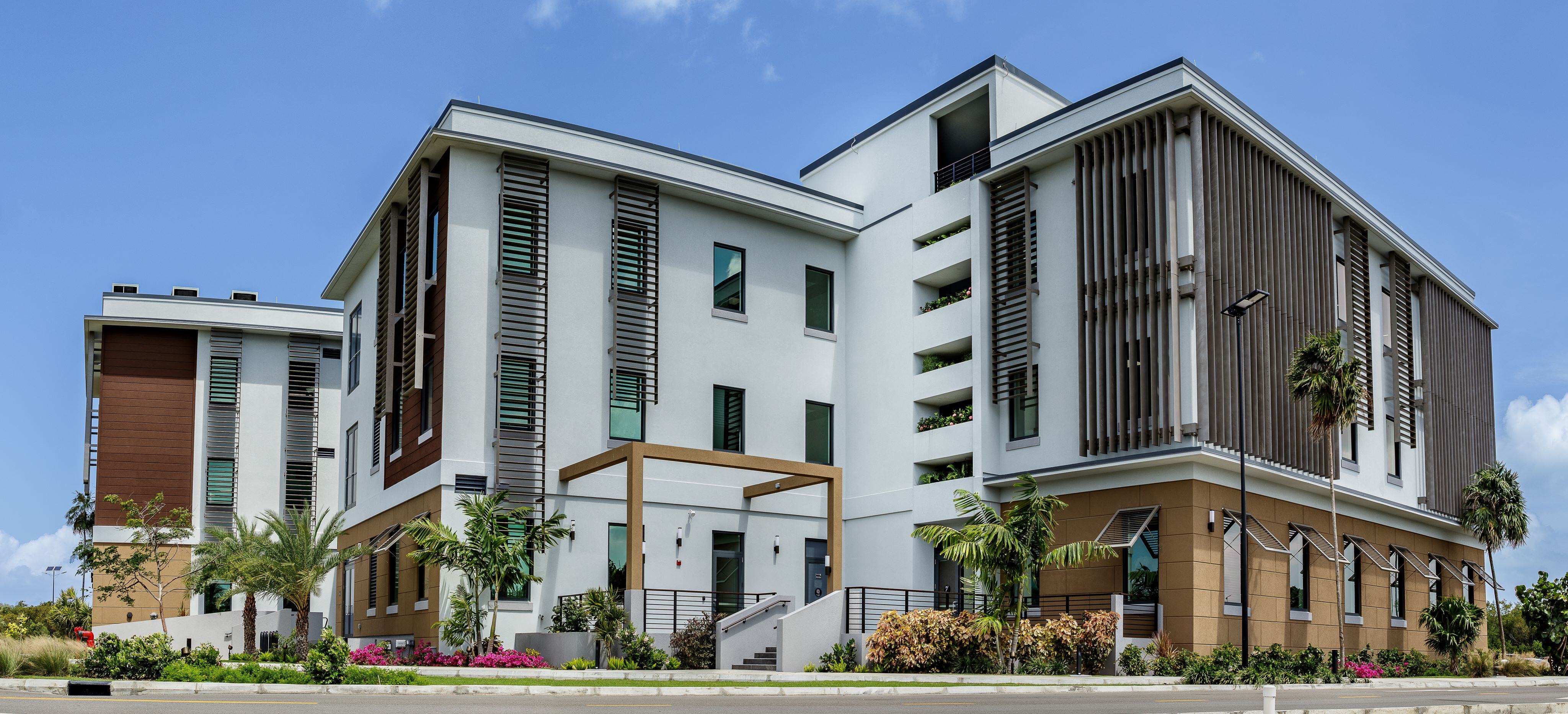
Why Cayman? | 2 MIN READ
The Impact of Cayman Enterprise City’s Socio-Economic Development Project Nears USD $1 Billion
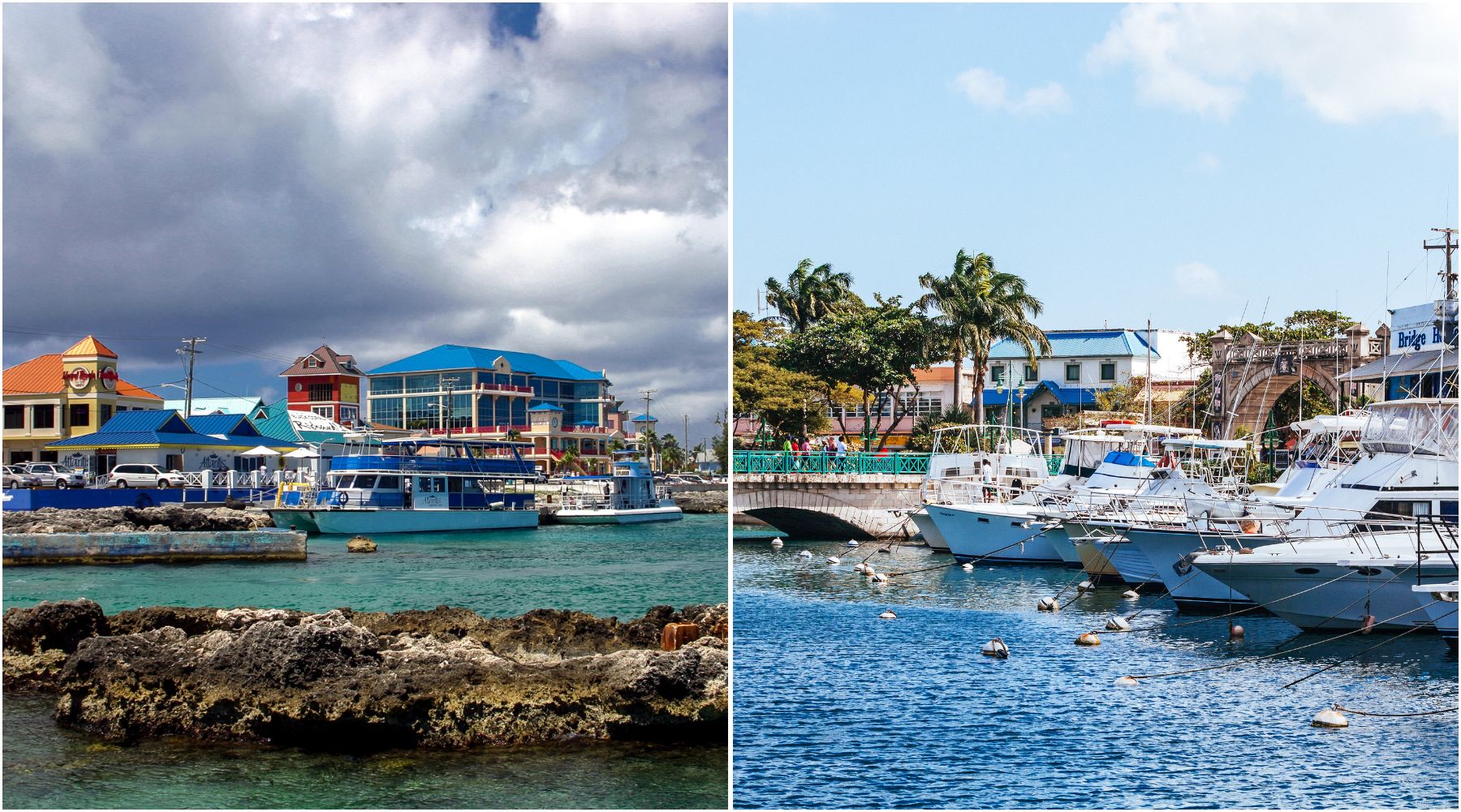
Cayman Islands vs Barbados: Offshore Business Showdown
Stay in touch and keep up-to-date with Cayman Enterprise City news...
.jpg)
- Privacy Policy
© Cayman Enterprise City. All rights reserved. T: +1 (345) 945-3722 E: [email protected]

Suggestions
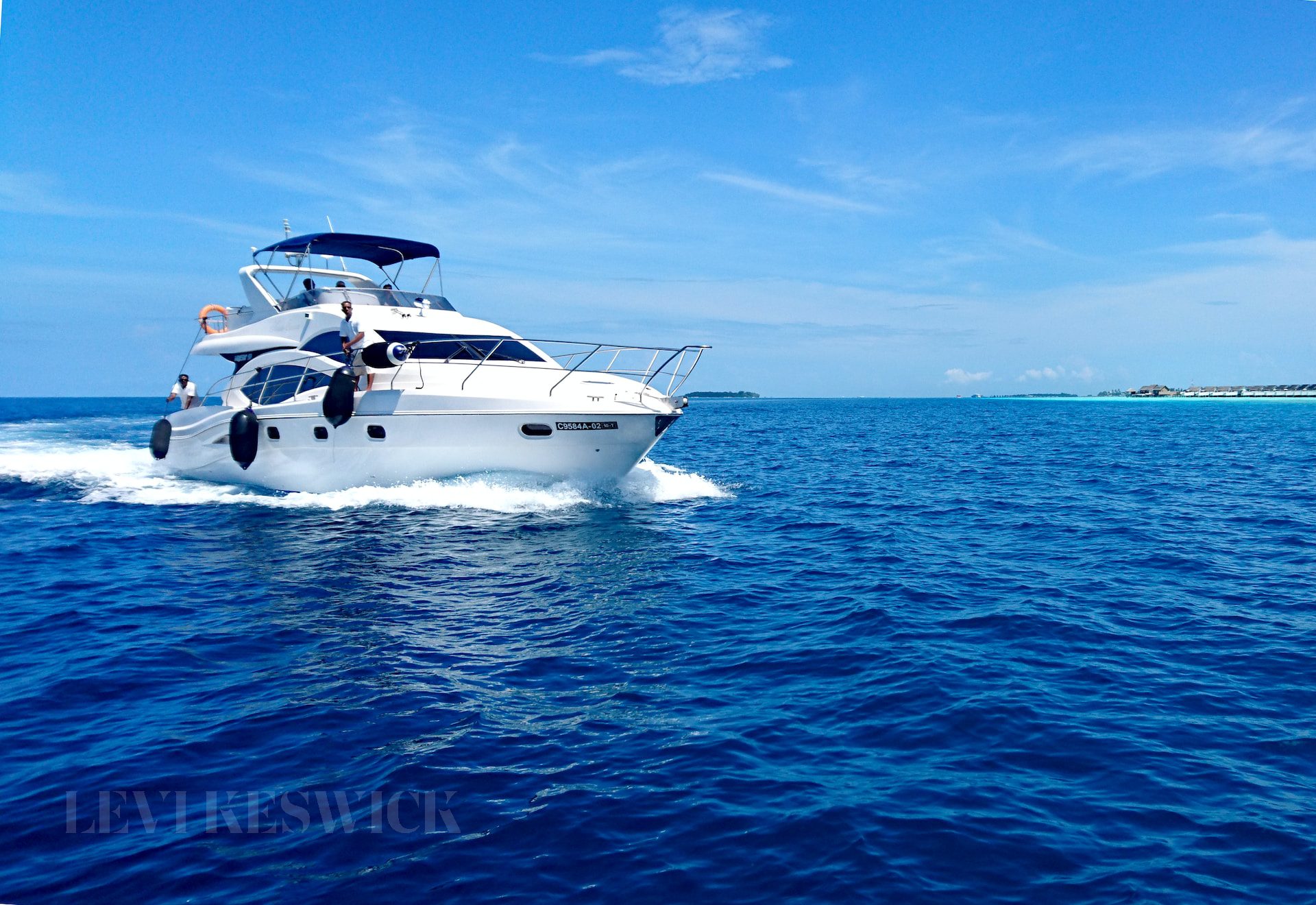
George Town Yacht Owner Among Elite Billionaire Seafarers: A 2023 Deep Dive

Key takeaways:
- The ownership of luxury yachts continues to be a symbol of wealth among global billionaires.
- George Town yacht owner holds a significant position among these affluent individuals.
- Yachts, apart from being symbols of luxury, are often equipped with cutting-edge technology and bespoke features reflecting the owners’ personal tastes.
Understanding the Billionaire Yacht Landscape
The world of yacht ownership is a pinnacle of luxury. Often reserved for the ultra-wealthy, owning a yacht is a testament to an individual’s financial success and taste for the finer things in life. From the George Town yacht owner to globally recognized billionaires, the allure of owning a private yacht remains unwavering.
The Influence of Wealth and Taste
While vast wealth makes the purchase of such grand vessels possible, the individual taste of the owners is reflected in the design, features, and functionalities of these yachts. From classical to contemporary designs, luxurious amenities, state-of-the-art technology, and personalized details, these floating residences exhibit the distinct persona of their owners.
The George Town Yacht Owner’s Mark in Luxury Yachting
Among these billionaire yacht owners, the George Town yacht owner’s influence cannot be overlooked. Known for their exquisite taste and an eye for detail, they stand as a significant player in the realm of luxury yachting. The level of comfort, sophistication, and technology in their yacht sets a benchmark for luxury sea travel.
The Most Luxurious Yachts and Their Owners
The list of luxury yachts owned by billionaires is impressive. These range from the Musashi owned by Larry Elisson, the Senses owned by Larry Page, the Dragonfly owned by Sergey Brin, to the Symphony owned by Bernard Arnault, among others. Each yacht, uniquely designed and equipped with incredible features, represents the peak of luxury and technology at sea.
The Irresistible Appeal of the Ocean
Owning a yacht goes beyond flaunting wealth; it represents a love for the ocean and the freedom it offers. The ability to explore the world’s waters in absolute luxury is an irresistible prospect for these billionaires. As the global billionaire list expands, so too does the list of opulent yachts.
The Ever-evolving World of Luxury Yachting
The world of luxury yachting continues to evolve, with new yacht designs, sustainable technologies, and bespoke amenities becoming increasingly common. The trend is moving towards eco-friendly designs without compromising on luxury, a trend that the George Town yacht owner and other influential figures are likely to embrace in the future.
Whether it’s the George Town yacht owner or other billionaires, yacht ownership continues to be a defining aspect of their wealth and influence. As they navigate through the high seas in their luxury vessels, they set new standards for what it means to travel in style and luxury. As we move forward, we can expect to see an increasing emphasis on sustainable practices in the creation of these oceanic wonders, merging ultimate luxury with responsibility towards our planet.

Levi Keswick
Leave a reply cancel reply.
Your email address will not be published.
By using this form you agree with the storage and handling of your data by this website. *
Recent Comments

About Levi Keswick

Exploring the Different Types of Recreational Boats

5 Tips for Performing Maintenance on Your Luxury Car

What Should You Know About the Genuine Leather Label?

Tips for Making Facial Scar Tissue Less Noticeable


Why register vessels in the Cayman Islands?
By: Dryad Global on December 23, 2020 at 8:22 AM
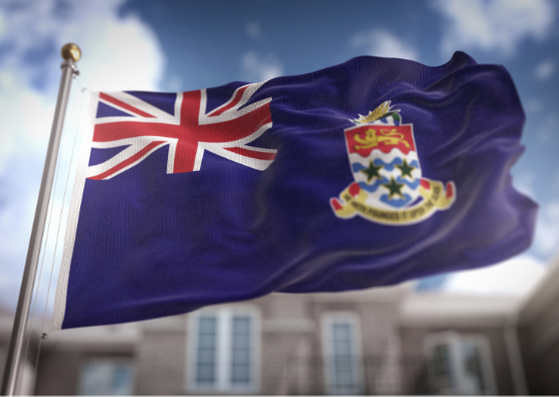
The yachting industry, like many other travel-related industries, was initially hit hard by the COVID-19 pandemic. However, there are now signs of recovery in the area of yacht sales and charters and the Cayman Islands continues to be a key player in the vessel registration space in these unprecedented times.
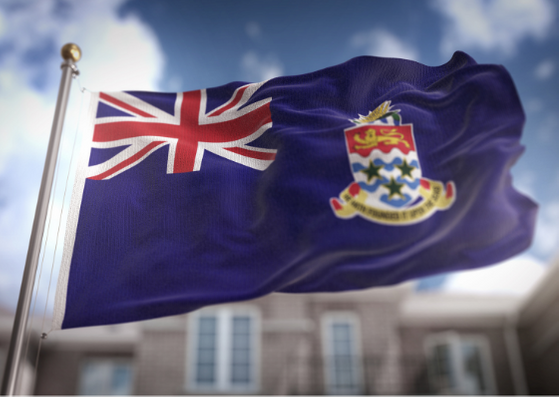
There are a number of reasons for registering a vessel, including:
- to prove its nationality (an essential requirement for overseas voyages);
- to secure title to a movable asset for the owner of the asset; and
- to allow the vessel to be used as security to obtain a marine mortgage.
Why register in the Cayman Islands?
Opting to register a vessel in the Cayman Islands has a number of advantages, including as follows.
Category 1 British Registry The Cayman Islands Shipping Registry (CISR) is a member of the Red Ensign Group with Category 1 status and is authorised to certify all sizes and types of vessel (other than fishing vessels, unless owned locally and operating in Cayman waters).
Favourable operating environment The Cayman Islands is a politically stable British overseas territory. It is an efficiently regulated international finance jurisdiction at the leading edge of global best practice.
Efficient With Category 1 status, the CISR is an effective and efficient registry which is responsive to enquiries and looks to facilitate smooth and efficient vessel registrations (and has continued to do so notwithstanding the recent challenges presented by COVID-19). Vessel and mortgage registrations can be completed within 24 hours of the provision of all required documentation to the CISR.
Experienced global team With offices in the Cayman Islands, the United Kingdom, the United States and Southeast Asia, the CISR can process registrations in various time zones promptly and efficiently.
Tax neutral Given the significant expenditure involved in the purchase and maintenance of modern vessels, the tax neutrality of the Cayman Islands minimises the tax leakage involved in any deals.

Modern maritime legislation As a jurisdiction which actively seeks new vessel registrations, the Cayman Islands has enacted maritime legislation to streamline the processes involved.
Several types of registration available The CISR offers different types of vessel registration including full, interim, under construction and demise charter registrations (also known as 'bareboat charter').
Registration process
Qualifying vessel The first step is to establish whether the vessel name is available and whether the vessel qualifies for registration with the CISR. Name availability can now be searched and name reservations made online on the CISR's website. A name can be reserved for 12 months and may be renewed.
For existing commercial vessels (merchant ships or commercial yachts), it is established whether the vessel would be accepted for registration by contacting the CISR.
For pleasure yachts in private use and not engaged in trade, minimum convention and statutory certification requirements apply. The precise requirements depend on the vessel's size. A pleasure yacht in private use (not engaged in trade) may voluntarily comply with the Large Yacht Code. In these cases, registration does not require such compliance, the vessel will be surveyed for compliance at the time of registration and if found compliant, the appropriate convention and statutory certificates will be issued accordingly.
Qualifying ownership The next step is for the CISR to satisfy itself that the owner is bona fide and qualifies to own a Cayman-flagged vessel. This involves a determination of whether:
- the owner has legal title; and
- any pre-existing conditions prohibit the vessel from being registered with the CISR.
The CISR accepts the following ownership structures for Cayman-flagged vessels:
- individual or joint owners; and
- companies and shipping entities.
Cayman companies The CISR accepts applications for vessel registration on behalf of companies or entities that are in the process of being incorporated in order to allow the registration of the owning company or entity and registration of the vessel to be progressed simultaneously.
Registration process The registration forms, supporting documentation and fees vary depending on the particular transaction being carried out. The CISR typically requires the following documentation in order to complete full registration of a vessel and issue a certificate of British registry for such a vessel:
- CISR 855 and CISR 856 registration forms;
- a builder's certificate if the vessel is new or a bill of sale if the vessel is an existing one;
- a certificate of good standing (or its equivalent if the owning company or entity is incorporated in another qualified jurisdiction) for the owning company;
- a certificate of survey;
- an international tonnage certificate; and
- a closed transcript or deletion certificate if the vessel was previously registered elsewhere.
Agents An owner may act in registration matters on their own behalf or appoint an authorised person to do so. If the owner (individual or body corporate) is not resident or incorporated in the Cayman Islands, a resident representative person must also be appointed to act on behalf of the owner. These appointments must be made before or at the same time as submitting the vessel registration application to the CISR.
Issue of carving and marking note Once the CISR has received all forms and supporting documentation, the IMO number (if applicable) and the relevant fees and the survey and audit requirements have been met, the CISR will:
- assign an official number to the ship;
- issue the owner (or their authorised or representative persons) a carving and marking note; and
- assign the signal letters for the vessel's radio station call sign.
Any of these parties may then arrange for the vessel to be first permanently marked and then inspected (normally by a class surveyor) for verification with the carving and marking note. If satisfied, the surveyor will sign the carving and marking note and return it to the CISR.
The completed carving and marking note may be submitted electronically within the allotted 21 days; however, the original should be returned seven days thereafter.
Radio licensing
Radio licensing applications are handled by the Utility Regulation and Competition Office of the Cayman Islands rather than the CISR. Radio equipment operators must have a radio operator's certificate appropriate to the equipment fitted for the vessel.
Completed registration
The effect of registration with the CISR is that the port of registry for the vessel in question will be:
- George Town;
- the Creek; or
- Bloody Bay.
In addition, a vessel registered with the CISR is a 'British ship' and is thus entitled to fly the red ensign flag and come under the protection of the British Royal Navy.
Source: International Law Office
Share article
Related Posts
Attempted boarding - lome anchorage.
Reporting indicates that the containership BAHMAS was approached by a small craft containing..
Panama-flagged AEGEAN II Boarded 180 nm SW off..
Reporting indicates that the Panama Flagged Chemical Tanker AEGEAN II has been attacked by unknown..
Boarding - 33nm SSW 33nm SSW al Hudaydah
Reporting by UKMTO and MICA Centre indicates that a vessel was attacked whilst in transit 33nm SSW..
Twitter Feeds
Cross-strait relations in the lai era.
- Privacy Policy
- Terms Of Business
- Terms Of Use
Press/media contact Email Us
General Enquiries Contact Us Here

© 2024 Dryad Global. All Rights Reserved
We use cookies for statistical purposes.
- clients(at)caymancompanyincorporation.com
- +1 866 948 5002

Boat Registration in Cayman Islands
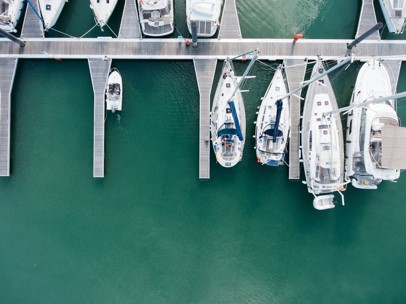
Boat registration in the Cayman Islands is performed with the Shipping Registry (CISR), according to the type of vessel. The Registry is a division of the Maritime Authority of the Cayman Islands and it offers a range of services to those who register merchant ships or yachts and other vessels.
The Cayman Islands have a longstanding seafaring history and together with several other locations, they are part of the red Ensign Group of Category One British registries. This grants the ability to register vessels of all classes, from small ones to large ones. The only exception is for fishing vessels, a category restricted to the ones that are locally owned.
When investors decide to open a Cayman Islands exempted company they may also be interested in registering a boat owned by the company. Our team answers some of the most common questions about this process and can provide boat owners with further assistance for George Town yacht registration , as needed.
Apart from assisting with boat and maritime law issues for those who own vessels in the Islands, our team is also highly qualified to assist investors interested in setting up a Cayman Islands company . We provide complete incorporation packages that can also include bank account opening (upon request), as well as guidance and assistance throughout the process or opening an offshore business.
Table of Contents
What are the advantages of registering a boat in the Cayman Islands?
Registering a boat in the Cayman Islands allows the owner to benefit from sailing under a recognized flag, and operating in a favorable environment. The jurisdiction is a favorable location for setting up a Cayman Islands company and for operating commercial or passenger’s vessels. The maritime legislation safeguards the rights of the operation of passenger yachts and that of merchant’s vessels.
What is the boat registration process?
Boat owners in the Cayman Islands can start by reserving a boat name. This can be an important step for those who wish to propose a specific name and it includes submitting a special form, with the name proposal and reservation as well as paying the name reservation fee.
The name of a vessel can be registered in one of the three ports – George Town, The Creek and Bloody Bay. The same applies for George Town yacht registration , meaning that if the port of choice does not have a name available, the other two may allow for that specific registration. When the name is available in all three ports, it can be registered across all three to allow the owner its single use. Names are reserved for 12 months and can be renewed and they are reserved and requested by the owner, the authorized person or the representative person. Another third party can also handle this step (the shipyard, for example, in case of new ships), however, such an action is subject to approval from the Registrar.
When registering a boat , it is important to fill in the appropriate forms including the details of the owner or the representative making the registration as well as provide the following documents:
- boat certificate: this is the builder’s certificate for the boat for a new vessel or the bill of sale for one that has been purchased.
- the Certificate of Good Standing: this is provided by the company owning the boat; for a Cayman Islands exempted company , or another resident company, the certificate of incorporation will suffice.
- the Certificate of Survey: this, along with the International Tonnage Certificate will need to be carried out on the boat, depending on size and type, the use and number of passengers.
- Others: included here are the Deletion Certificate for boats previously registered elsewhere, the registration fee and the tonnage fee.
An additional registration, however, one that is not carried out the by the Cayman Islands Shipping Registry but by the Utility Regulation and Competition Office is the ship radio station licensing. The operator of the radio is also required to have an Operator’s Certificate according to the equipment that is used on the vessel. Vessels also need to register their emergency position indicating radio beacon with appropriate maritime administration (for example, the NOAA in the USA).
One of our Cayman Islands incorporation agents can give you more information about the requirements to provide the company’s registration documents.
Other services offered by the Cayman Islands Shipping Registry include the change of vessel type, the registration of a mortgage, the deletion of a vessel, the transfer of ownership or the registration of a ship under construction.
We invite you to watch the following video on boat registration:
Types of vessel registration in the Cayman Islands
There are two main categories of vessels that can be registered with the Cayman Islands authorities: George Town yacht registration and merchant vessel registration. For each of these two types, the individual who submits the registration needs to follow the steps described above, starting which choosing an available name, and then determine the ownership structure.
The ownership structure can be the following:
- Companies: a company incorporated in the Cayman Islands, a country in the EU or EEA or a country included in the Third Schedule of the Cayman Islands Money Laundering Regulations; companies that do not fall under these categories may still register a vessel under the Cayman flag if they are registered in the Cayman Islands as foreign companies and have a place of business here;
- Individuals: George Town yacht registration is possible for individual and joint users who are nationals of EU or EEA or a country included in the Third Schedule of the Cayman Islands Money Laundering Regulations; individuals who do not fall under these categories can be part-owners of a Cayman-registered vessel if the majority is owned by a qualified individual. This means that even though they do not qualify, individuals can still own 31 of the 64 shares in a vessel.
As far as the types of vessel registration are concerned, there are five possible cases:
- Full: the complete registration of a vessel and the receipt of the Certificate of British Registry upon completion;
- Interim: for the duration of a transfer of ownership for a foreign owner vessel to one that will be registered in the Cayman;
- Term: a temporary exception to full vessel registration, to be used when the owner in Cayman is not yet in the possession of the Certificate of Survey;
- Under construction: as the name suggests, when a vessel is still under construction;
- Demise charter: demise charter out and demise charter in vessel registration (when the owner leases the vessel to the charterer for a period during which the latter will be fully liable for the use and management of the vessel).
Our team can help you if you are interested in full George Town yacht registration .
How can our Cayman Islands company formation agents assist boat owners?
Our team provides regular services for setting up a Cayman Islands company , however, we can provide dedicated services to those entrepreneurs who are interested in registering a vessel owned by the Cayman Islands exempted company . The operating environment for boat owners is as favorable as for opening a company, in a tax-neutral jurisdiction where the principles of the English Common Law govern and locally registered vessels benefit from British Consular Services and Royal Naval Assistance.
Under the conditions for registration set forth by the Maritime Authority , it is important to appoint an authorized person at the very beginning of the process when the owner of the boat is not present for the process. The representative person and the authorized person for George Town yacht registration can be the same in some cases, however, their functions are separate. The difference derives from the manner in which the person is appointed: two different forms are used, and the representative person needs to accept their appointment by submitting a declaration. When the vessel is under joint-ownership, owe of the owners can act as the authorized person through a power of attorney and in this case he is appointed through the form designated for the authorized person (form CISR 855). The owner of the vessel is still allowed to deal with the Registry directly even if he has appointed a representative. One of our agents can assist you during this step.
In most cases, George Town yacht registration is a process that can be completed within 24 hours after the receipts of all the needed documents and after all of the fees have been paid. The Registry also offers an over-the-counter service for an additional fee, through which the registration is completed immediately, also dependent on whether or not the complete documentation is submitted. The documents can be submitted in printed form or by email, however, when the originals are not provided immediately, the individual undertakes that he will supply the originals within 7 days of registration.
The following statistics were issued by the Cayman Port Authority concerning passenger and cargo transportation:
- the number of cruise ship passengers in January 2019 was 217,111 while for the same month in 2018 it was 218,430.
- the total vessel calls (vessels that dock during the course of a voyage ) for January 2019 was 95, with an average of 76 for the month of January in the 2010-2019 period.
- as far as the container value expressed in tons according to the port of origin, in January 2019 there were 12,137 tons on vessels from Port Everglades and 10,051 tons on vessels originating from Jamaica; shipments from Port Everglades also recorded a high value (in tons) for June 2019, at 12,468.
Contact our Cayman Islands incorporation agents for more detailed answers to these questions as well as more information about the services we provide to investors and entrepreneurs.
- Advertising
- Distribution
- Ad Directory
- Supplement Archives
- Legge Communications
- From the Governor
- From the Publishers
- Editor’s Message
Three Books You Must Not Miss
Grand cayman magazine: continuing to grow with the island, may i have your attention, please, view from the hammock: if i were king, putting the ‘grand’ in grand cayman, the ‘cover story’ of grand cayman magazine, the cayman islands: blooming and booming, shooting stars – the gala season is upon us, wish you were here, serene scenes of the cayman islands, reasons to love cayman, celebrate cayman, cayman life in full bloom, big, bold, beautiful.
- Advertise With Us

The super-rich and their Super-Yachts
D ubai, part of the United Arab Emirates and host of the International Boat Show, is a towering business and commercial center in the Middle East and sprawls along the southeast coast of the Persian Gulf.
Most of the buzz about this late-winter expo centered on the array of super-yachts docked there. The craft are among the biggest, grandest, most-stylish multimillion-dollar recreational vessels the world has ever seen.
These days, all the major boat shows display them, despite that the yachting industry suffered decade-long doldrums during and since the worldwide economic collapse. In fact, 2014 was the first time that seemed to show the stars aligning for a resurgence of interest in sea-going luxury from the richest people on the planet.
Their current principal objects of desire include a whole new selection of super-yachts (vessels over 40 meters – about 130 feet – in length) and even mega-yachts, roomier and grander still. These vessels are strictly for the mega-rich, the only consumers who can afford them and the first to emerge from the worldwide recession with great spending power.

Cayman ready to register
Cayman stands ready and eager to land itself an armada of such new seacraft – not for the sublime enjoyment of its residents but for the increased revenue and prestige such a fleet may bring the islands.
Government leaders hope a good portion of these vessels will be flying the Cayman flag as they cruise the seas. Such visibility could help enhance the islands’ image. Plus, all the fresh spending their owners and crews bring here will help enrich local suppliers of professional goods and services as well as government coffers through fees, levies and inspections costs.

The Cayman Islands Shipping Registry, responsible for vetting craft and their owners, conducting inspections and setting rules for their international operation, already has expressed its excitement about the industry comeback, even if just one tier is making most of the progress. That tier is the one comprised of the largest, heaviest and most luxurious of yachts.
Yacht sales increasing
The world’s super-rich have started buying their new super-yachts, industry sales numbers clearly show. But the yachting world takes that as a sign sales of the whole range of luxury craft, including smaller, more modest vessels, will lift with what looks like a rising economic tide.
In January, Joel Walton, CEO of the Cayman Islands Shipping Registry, told a group of yachting industry leaders at a meeting that also happened to be in Dubai that he had been closely watching the re-emergence of large, luxurious seacraft following years of scant sales.

Walton cautioned the shipping and maritime leaders in his audience about challenges to the yachting industry, though, including the European Union’s economic uncertainty, language and cultural issues that may result from the emergence of China as a new participant in world yachting, and the industry’s continuing globalization.
But he made sure he reminded his audience that Cayman remains an especially attractive flag of convenience for any foreign owner looking for benefits from the site where he registers his vessel. Walton focused on foreign owners, of course, since there are relatively too few Caymanians with the kind of wealth to own and maintain a major yacht.
Consider what it would take to buy and navigate a vessel like Illusion, a 275-foot Pride Yachts-made mega-craft now on the market for around $100 million. Certainly out of the reach of most on island.
That’s a good reason for the Cayman government and the CISR to persuade British, U.S., Brazilian, Chinese, or other yacht owners to pay their annual fees here. But, many wonder, what is it about big boat owners that compels them, wherever they live or operate their businesses, to seek out foreign ports to register such expensive investments?
The answer is that it’s not just ports such as Grand Cayman that win rewards for offshore yacht registration; the wealthy foreign owners of Cayman-registered craft find benefits beyond the imagination of most people of ordinary means.
Advantages in Cayman
Who better could enumerate the advantages to these owners than a maritime lawyer who focuses on helping the rich protect their wealth from being nickeled and dimed away by home government rules.

“There are so many reasons why larger yacht owners register their boats abroad,” Neblett said. “One is that if you have a U.S. flag vessel, you fall under U.S. law in crewing it.” A good-sized luxury boat can require a crew of 10 to 20 people, and if you’re flying an American flag, they might have to be American citizens.
“And in the United States, there’s a shortage of people who do that kind of work,” Neblett said. “Plus, you have to have workers compensation insurance for each of them. There’s a big savings to hiring your crew outside the U.S.”
All 50 American states have sales taxes, too. In Florida, the rate is 7 percent (though in many cases it may be capped at $18,000). “There is no such tax on vessels in Cayman,” according to Neblett. “If you have one home in Florida and one in, say, New York, you probably have to pay many fees in both states if you sail between the two, another big expense.”
The Miami lawyer also points out that liability issues for owners of large vessels could put one’s personal wealth at risk in the case of certain legal disputes. “That’s why you usually want to create a corporation to hold ownership of your boat. That also can give owners a degree of anonymity when their craft bears the flag of a foreign nation.”
The Cayman Islands, he points out, provide legal privacy to corporate officers and board members, making it hard for international figures to sue them personally over issues regarding a yacht. Plus, famous athletes, business people, and entertainers can enjoy their luxury accommodations without drawing crowds of admirers –- or enemies.
“Tax benefits, privacy, liability, crewing requirements, all these are good reasons for our high-net-worth clients to register offshore,” Neblett said.
“Another is that U.S.-flagged vessels have to have U.S. Coast Guard inspections and certifications, and that involves more costs and obligations.”
What flag a yachtsman choses involves a quid pro quo. The owner benefits, and the port or nation where one is registered gets advantages, too. To set up a corporation to hold ownership of the vessel means the employment of local lawyers and, perhaps, accountants, relationships with financial institutions and some relationship with the government.
Holding the registration of a large number of sizable yachts not only brings revenue to the government and its shipping registry, it provides a measure of economic development in the private sector, as well. Owners must pay all those professionals, hire crews, maintain proper care and security for their vessel and dock it somewhere.

Choosing an offshore registry
Choosing an offshore yacht registration site, including Cayman, the Bahamas, Singapore, Cyprus, Panama, Hong Kong, and many more, can be an enormously complex process. In the U.S., savvy owners look for a board-certified maritime admiralty attorney who specializes in recreational boating. A well-decked-out firm also likely handles insurance choices, crewing issues, and financing matters.
There are more such firms all the time as, in most countries in the world, so much wealth has been accumulating in the top stratum of income and net worth. If the world economic crisis continues to fade into the past, the full spectrum of yachting industry participants is likely to grow larger, studies show.
That means more and bigger (and more luxurious) marinas and docking facilities in ports, more marine outfitting establishments doing increased business, and more back-shop professionals available to do the paperwork that yachting generates.
Boat International, a publication that focuses on international yacht sales, has chronicled a sharply growing market for the last year and more. “We know of 27 super yacht sales in January,” the current issue reported, “the best start to the year since the global financial crisis. It was up 10 on January 2014’s tally.”
But boating analysts have been focused on an emerging market of eager buyers that may affect the future of world yachting. ChinaDaily USA recently ran an article about this new market under the headline, “China is potentially biggest global yacht market.”
The popular publication went on to report that “China’s rich are becoming more interested in the yachting culture, and their numbers are big and growing.” And it named Shanghai as “the mega-city in China where yachting is catching on big among rich Chinese.” It also reported that the whole Chinese coast is undergoing a huge expansion of marinas.
That shows that wealthy residents of the most populous nation and the one whose economy has been rising the fastest in the world are as drawn to the sea as those whose fabulously rich have been motoring and sailing about for years in their floating mansions.
Welcoming yacht owners to register their craft in the Cayman Islands as their numbers increase is not only a kind gesture to the next generation of rich, private mariners, it likely enhances the economy here as well.
Mr. Bentayou, a freelance writer out of Tampa, Florida, is a frequent contributor to Pinnacle Media publications.

- Advertise with Us

Cayman Islands Yacht Registration
Introduction.
The purpose of this guide to highlight the many advantages of the Cayman Islands Shipping Registry and to introduce the comprehensive range of Cayman Islands yacht registration services that we provide.
About the Cayman Islands
The Cayman Islands are an autonomous British Overseas Territory in the western Caribbean Sea. The 264-square-kilometre (102-square-mile) territory comprises the three islands of Grand Cayman, Cayman Brac and Little Cayman, which are located to the south of Cuba and northeast of Honduras, between Jamaica and the Yucatán Peninsula.
About the Cayman Islands Registry of Ships
The Cayman Islands Shipping Registry is a Category 1 British Register of Ships and is a division of the Maritime Authority of the Cayman Islands.
The Cayman Islands have maintained a shipping registry in the Cayman Islands since 1903.
The Cayman Islands are the number one offshore register for super yachts, with an estimated 15% of the world fleet of yachts over 30m (100ft).
In the range of yachts over 40m (130ft), some 20% of the world’s fleet is registered in the Cayman Islands.
Port of Registry
There are three Cayman Islands ports of registry, namely:
- George Town
- The Creek
The Flag (‘Ensign’)
Cayman Islands registered vessels can fly either an undefaced red ensign or a red ensign defaced with the Cayman Islands crest
The Certificate of British Registry
Upon completion of registration formalities a Cayman Islands registered yacht is issued with a Certificate of British Registry.
Eligibility – Yachts
The Cayman Islands will accept private pleasure yachts and commercial yachts of any size that are based and operated anywhere in the world.
Eligibility – Owners
The Cayman Islands Register of Ships is an international register meaning that the register is not just restricted to Cayman citizens or Cayman registered companies.
Citizens and companies from countries listed in the following table are able to register in the Cayman Islands directly in their own name:
| Anguilla | France | Madeira |
| Argentina | French Guiana | Malta |
| Aruba | Germany | Martinique |
| Australia | Gibraltar | Marshall Islands |
| Austria | Greece | Monaco |
| Azores | Guadeloupe | Netherlands |
| Bahamas | Guernsey | New Zealand |
| Bahrain | Hong Kong | Norway |
| Barbados | Hungary | Peoples Republic of China |
| Belgium | Iceland | Portugal |
| Bermuda | India | Romania |
| Brazil | Ireland | Singapore |
| British Virgin Islands | Isle of Man | Slovakia |
| Bulgaria | Israel | Slovenia |
| Canada | Italy | Spain |
| Canary Islands | Japan | Sweden |
| Cyprus | Jersey | Switzerland |
| Czech Republic | Kingdom of Netherlands | United Arab Emirates |
| Denmark | Latvia | United Kingdom |
| Estonia | Liechtenstein | United States of America |
| Faroe Islands | Lithuania | |
| Finland | Luxembourg |
Summary of Features & Benefits of Yacht Registration in the Cayman Islands
- The Cayman Islands are a neutral, politically stable and well-regarded jurisdiction that has been white-listed as a transparent and well-regulated offshore finance centre
- Member of the coveted ‘Red Ensign Group’ of British ship registries and Cayman Islands yacht registration enables the prestigious red ensign to be flown
- Government funded, operated, backed and staffed ship registry
- Neutral port of registry marked on the vessel holding the reputation of a quality register that is familiar to port and customs authorities around the world
- High service levels driven by a customer first service ethos resulting in quick turnaround of applications
- The availability of a ‘Ship Under Construction’ registration allows yachts to be registered whilst under construction to provide owners with greater security during the build of their vessels
- Wealth of experience – many yachts current on the register
- Competitive registry fees
- No insurance premium tax (6% in UK)
- International offices facilitate the ease of transacting in different time zones
- Cayman Islands registration is valid internationally and documentation issued in English so widely understood.
- Cayman Islands registered yachts do not have to ever physically visit the Cayman Islands
- The Cayman Islands Register of Ships provides proof of title and enables the owner to register a mortgage on the vessel
- Yachts can be coded and operated as commercial charter yachts on the register
- Entitlement to register includes a wide range of global citizens which can avoid the need for company formation for the majority of potential clients
- Cayman Islands registered yachts are entitled to diplomatic protection, British consular assistance and Royal Naval protection (dependent on availability of assets/& nature of the threat)
Cayman Islands Yacht Registration By Oceanskies
Oceanskies provides a fixed fee yacht registration service to all yacht owners wishing to take advantage of the benefits of Cayman Islands registration for their yacht.
The registration service results in Oceanskies taking responsibility for the entire registration process on behalf of the owner.
Our fees include all registry fees and disbursements providing the internationally recognised Cayman Islands Certificate of British Registry and a lifetime radio licence allocating the vessel’s call sign and MMSI number.
Example Pricing
Our fixed fee yacht registration package for the Cayman Islands registration of any private yacht under 24 metres in registered length lying within the EU costs only £5,250.00 in year one and then £1,450.00 per annum in second and subsequent years and includes:
- Full Certificate of British registry
- Provision of Cayman Islands representative person
- Tonnage Survey Onboard vessel lying in EU
- All registry fees
- Radio licence allocating call sign & MMSI number
Crew Employment & Payroll for Cayman Islands Registered Yachts
Through Oceanskies Crew Limited we are able to provide crew payroll outsourcing services from for crew working onboard Cayman Islands registered vessels.
This service is a very popular ‘bolt on’ service for our clients as it simplifies the employment of the crew of their Cayman Islands registered yacht.
The yacht owner engages Oceanskies Crew Limited to employ and pay the crew of their vessel through a crew services agreement. As employers, Oceanskies Crew Limited issues the crew with contracts in line with the Marine Labour Convention guidelines, pays them, issues payslips, sea service testimonials etc.
For further information please refer to the crew employment and payroll section of our website .
Other Cayman Islands Registration Services by Oceanskies
Oceanskies are able to provide a range of stand-alone fixed fee additional registration services including:
- Arrangement of Cayman Islands representative person facilities;
- Registration of yachts under construction as ‘Ship Under Construction’;
- Registration of new owner details in event of vessel transferring to a new owner qualified to maintain Cayman Islands registration;
- Drafting of sale documents such as a Bill of Sale in the Cayman Islands format and any supporting documentation required by the Buyer of the vessel;
- Transfers of vessel registration to the Cayman Islands from other British registries, (and vice versa);
- Performance of tonnage surveys and issue of Certificates of Survey for Cayman Islands registration on vessels under 24 metres in loadline length;
- Effect change of vessel name;
- Make amendments to registered particulars of vessel;
- Manufacture and supply of tonnage plates displaying official number for Carving & Marking purposes;
- Registration / discharge of marine mortgages;
- Arrange deletion / cancellation of Cayman Islands registration to provide a Closed Transcript of Registry (Deletion Certificate); and
- Obtain Current Transcripts of Registry to provide at the time of issue a ‘snapshot’ of the register confirming: – Vessel dimensions and particulars such as the builder, length, breadth, tonnage, year of build and engine details; – Details of the current registered owner; and – Details of any mortgages or encumbrances such as a bank loan registered against the vessel.
Please do not hesitate to contact for a free no obligation proposal for any of our Cayman Islands yacht registration services or any general yacht registration query that you might have.
Relevant Guides
More information, who to contact.

Oceanskies on Instagram
Oceanskies on twitter, guernsey office.
Oceanskies Limited Castle Emplacement St. Peter Port, Guernsey GY1 1AU Channel Islands, Great Britain
Oceanskies Support Services Limited International House Solent International Business Park George Curl Way Southampton SO18 2RZ Great Britain
Malta Office
Oceanskies (Malta) Limited Premiere Business Centre, Suite 1, Level 2 Constitution Street Mosta MST 1750 Malta
Email Crew: [email protected]
Email Registration: [email protected]
Call: +44 1481 711994
Oceanskies Limited is registered in Guernsey (company number 56102) | Registered Office: Castle Emplacement, St.Peter Port, Guernsey GY1 1AU, Channel Islands, Great Britain
Oceanskies Support Services Limited is registered in the United Kingdom (company number 14539527) | Registered Office: 80 Grove Lane, Holt, Norfolk, United Kingdom, NR25 6ED
Oceanskies Malta Limited is registered in Malta (company number C 77899) | Registered Office: Premiere Business Centre Suite 1, Level 2, Constitution Street, MOSTA, MST 1750, Malta
Terms & Conditions | Privacy Policy
DriveMag Boats
Your ultimate resource for anything ship-related
Where to register your superyacht?
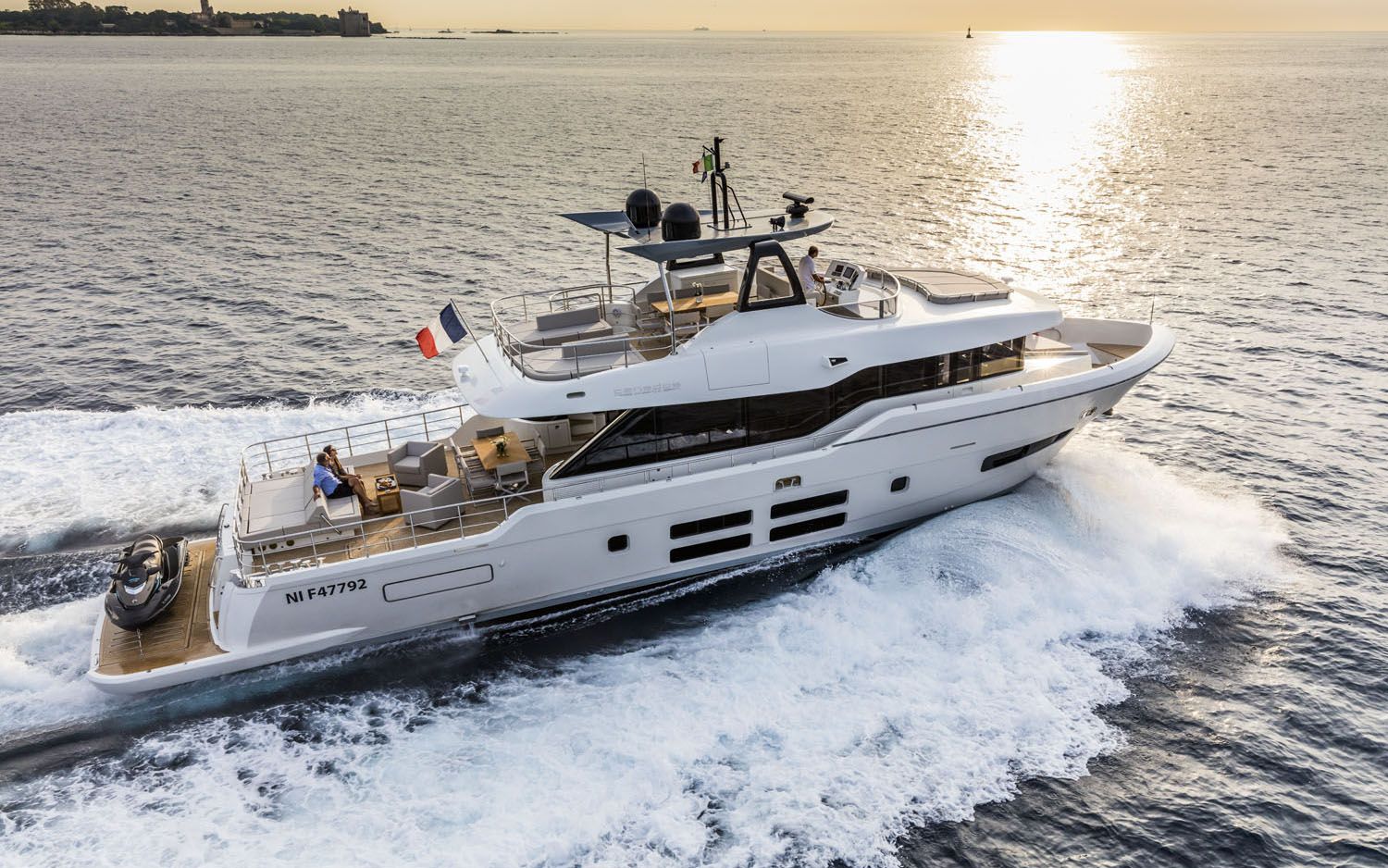
Why so many island flags?

If you passed by a luxurious marina in the south of France or a Spanish island, you'll notice a lot of superyachts. But almost none of them are carrying a known flag on the jackstaff.
The flag you choose for your superyacht will have a direct impact on your taxes, privacy and the vessel's success as a business. There are no simple answers here, but there are some general rules.
Choosing an offshore state to register your superyacht makes sense especially if you will charter the vessel as a business. Registering your vessel with an offshore flag can bring many benefits: a lighter tax burden, confidentiality of ownership, better rates from banking and insurance companies. If you choose to use the yacht only for private enjoyment and not charter it, you might register the vessel in your home country.
In choosing the flag, a good starting point is the so-called White List as maintained by the Paris Memorandum of Understanding on Port State Control (Paris MoU).
The Paris MoU is made of 27 participating maritime administrations and covers the waters of the European coastal states and the North Atlantic basin. The states are ranked on three lists: white list, grey list and black list. The states on the White List have demonstrated strong performance in safety, security and environmental standards. Flags on the Grey and Black Lists are deficient and vessel risk inspections and even detentions.
Cayman Island flag
The favorite flags for the majority for superyacht owners are those of the British overseas territories, commonly known as the Red Ensign Group. Almost 80% of the yachts and superyachts are registered in the Cayman Islands, Gibraltar and Isle of Man.
Sailing under one of these flags provides protection of the British maritime law, commercial confidentiality and adherence to the Large Yacht Code (LYC)
The registry with the largest number of yachts is the Cayman Island Shipping Registry. The port of George Town is the homeport of the majority of superyachts.
Also part of the Red Ensing Group are Guernsey, Jersey, Anguilla, Bermuda, British Virgin Islands, Falkland Islands, Montserrat, St. Helena and Turks & Caicos.
Out of the 13 members, only the UK and Gibraltar are EU-flags. Another popular flag with the superyacht owners is the one of the Pacific nation of Marshall Islands.

Andrew Henderson
Founder of Nomad Capitalist and the world’s most sought-after expert on global citizenship.
ABOUT THE COMPANY
What we’re all about
MEET OUR TEAM
Meet our 95+ global team
We’re here to serve you
Your questions answered
TESTIMONIALS
Read our testimonials
Get free email updates

ACTION PLAN
Our flagship service for entrepreneurs and investors
ACTION PLAN ELITE
Create your Action Plan directly with the Mr. Henderson himself
CITIZENSHIP BY DESCENT
Claim a second passport based on familial connections
ALL SERVICES
Click here to see all our products and services
GOING OFFSHORE
Offshore Banking
Offshore Company
Offshore Trust
Offshore Gold Storage
Offshore For Americans
SECOND CITIZENSHIP
Second Passport
Citizenship By Investment
Citizenship By Ancestry
Dual Citizenship Benefits
EU Citizenship
SECOND RESIDENCE
Second Residence
Golden Visas
Residence By Investment
EU Residence
Tax Residence
FINANCE & INVESTMENTS
Tax Reduction
International Investment
Cryptocurrency
Foreign Real Estate
Asset Protection
NOMAD LIFESTYLE
Flag Theory
Lifestyle Design
Plan B Strategy
Hiring Overseas
Living In Eastern Europe
PASSPORT INDEX
Discover the world’s best passports to have in an ever-changing world
CITIZENSHIP MAP
Explore the citizenship options using our interactive citizenship map
Explore the tax details for countries using our interactive tax map
ALL RESEARCH
Click here to see all of our research and interactive tools
THE WORLD’S #1 OFFSHORE EVENT
Learn from a curated “Who’s Who” of business speakers from around the world, get our latest R&D updates, and rub shoulders with successful people from all corners of the world.

NOMAD CAPITALIST THE BOOK
Andrew Henderson wrote the #1 best-selling book that redefines life as a diversified, global citizen in the 21st century… and how you can join the movement.
Where to Register Your Yacht Offshore: the Ultimate Guide

Dateline: Belgrade, Serbia
For the person who has successfully opened an offshore bank account , got a second passport and is living the lifestyle of their dreams traveling the world, the time has come to move on to the next level of flag theory. This new level is one where the focus shifts from acquisitions that are largely for diversification purposes toward purchases meant purely to improve your lifestyle – like boating.
For many who reach this stage, the next step is to combine travel and leisure by investing in the purchase of a yacht.
Unlike buying a new car – or even a house – buying a yacht is an investment of an international nature, and deciding upon the best country for yacht registration is a decision for which you need professional advice so you do not expose your assets to unnecessary taxes and liabilities. If you go into the process uneducated, your exciting new purchase might just become nothing more than a hole in the water into which you pour unnecessary amounts of money.
As with other international strategies, the country in which you register your yacht can have an enormous effect on the amount of money you will be able to save, as well as your freedom of travel. Some countries keep you from freely traveling to other jurisdictions, others charge high tax percentages or registration fees, and others do none of those things.
Choose Your Flag Wisely
When buying a yacht, the choice of yacht flags is one of the most important decisions you have to make because it can have a direct effect on your privacy, taxes, and your exposure to liability. Just as you would create a corporate structure to protect your other assets, you should do the same when it comes to yacht registration.
For this reason, many boat owners opt to register their yacht in places like the Cayman Islands to avoid the onerous taxes and regulations of the United States and other western governments. Panama , with its favorable registration policies, is the largest ship registry in the world with over 9,000 ships flying its flag.
However, it’s also very important to do your due diligence in selecting a country for yacht registration by working with a professional. Once your vessel is registered in a country, all of the country’s laws will apply to your boat. Many countries that have attractive tax structures have other issues that you’ll want to avoid, such as laws that require you to hire a crew completely composed of nationals from that country.
You will also want to register your yacht in a country that is well respected by the US and the EU. If you choose a country with a bad reputation, it can limit where you are allowed to travel, or at the very least, make you subject to more detentions and inspections.
The flag state has the responsibility to enforce regulations over vessels registered under its flag, so yacht registration under countries on the Paris Memorandum of Understanding (Paris MoU) on Port State Control’s black or gray list will come under more scrutiny in inspections. Because of this, a large majority of yachts are flagged in British Overseas Territories, known as the ‘Red Ensign Group’ — including Bermuda, Gibraltar and the Isle of Man.
These countries have acceptable safety regulations for travel in EU countries, while also having more attractive tax structures than the UK. In fact, company tax is set at 0% in the Channel Islands , the Isle of Man, the Cayman Islands, and Bermuda .
This is particularly useful for those who wish to spend time in European Union waters, as vessels owned or used by EU residents are subject to the EU’s Value Added Tax (VAT). Private yacht registration with a non-EU flag allows an owner to operate under a “temporary importation structure” which allows for 18 months free of these taxes or customs duties. After the 18 months are over, the boat owner can re-apply for this status.
Bearing this in mind, let’s take a look at some of my favorite countries for yacht registration.
1.The Cayman Islands
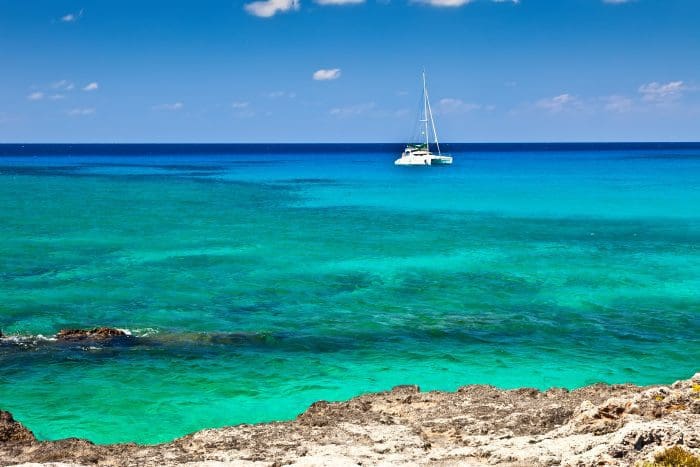
The Cayman Islands Shipping Registry is a favorite among people who own both pleasure and commercial yachts worldwide. This ship registry has been at the Port of George Town, Cayman Islands since 1903. There are two other ports in the Cayman Islands as well: The Creek in Canyon Brac and Bloody Bay in Little Cayman.
The Merchant Shipping Law, which was revised in 2016, is the governing legislation for all boats registered in the Cayman Islands. The law offers many different types of yacht registration, including full registration, interim registration, provisional registration, a ship under construction registration, and demise charter/bareboat registration. An owner who is having a vessel built might find this convenient so he or she can register it as a boat under construction and then change to full yacht registration later.
As I mentioned above, the Cayman Islands is a part of the Red Ensign Group. This means that getting your yacht registration in the Cayman Islands flags your vessels as a British Ship, granting it protection by the British Royal Navy.
Because time is crucial for so many people, the Cayman Islands Ship Registry (CISR) can also expedite the registration process for those who need to be registered immediately if they pay their expedition fee. In addition, the CISR has representative offices in Fort Lauderdale, London, Cannes, Athens, Tokyo, and Singapore where you can have ship registry certificates issued immediately if needed.
Yachts that are registered with the Cayman Islands as pleasure yachts and are not engaged in trade are granted a License to Cruise the water of the United States which will allow them to enter, depart, and cruise within U.S. waters. These vessels will only need to report to U.S. customs when entering the country or changing customs districts.
Assuming you meet all of the required qualifications, there are no restrictions or rules concerning the nationality of the master or the crew of your ship. In addition to the Cayman Islands being a tax neutral environment, the jurisdiction provides vessel owners with banking facilities and directorship services.
Overall, vessels registered in the Cayman Islands benefit from all the privileges of the British flag, while simultaneously having the tax-free and confidentiality perks of the Cayman Islands.
2. The Netherlands
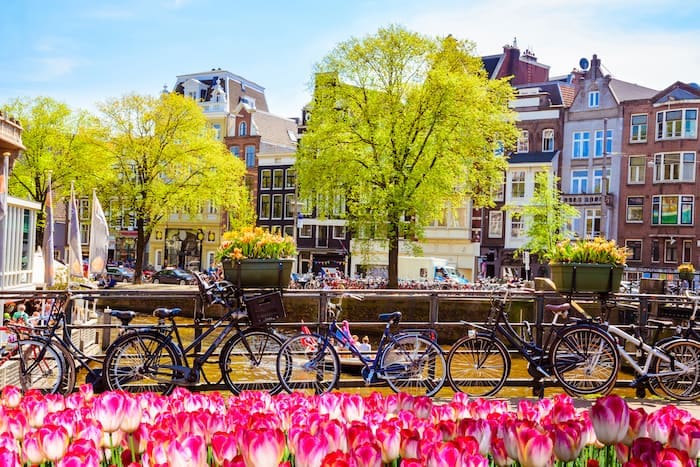
Many people consider Holland to be an ideal location for yacht registration because the country is flexible and straightforward, whereas most other European countries follow stricter rules and regulations. The registration process is fast compared to that of other countries and requirements are minimal.
To register under the Dutch flag, the process is easiest if you are either an EU citizen, Swiss, Norwegian, or own a company registered in the EU.
One of the main advantages of the Netherlands is that you can be registered under the Dutch flag in as little as three days. That is why Holland is typically preferred over countries like Italy, France, and Spain where there is a longboat registration process in addition to high registration fees. A lot of yacht owners solve this problem by registering under the Dutch flag. Taxes and registration requirements in the Netherlands are minimal, allowing the whole process to be completed in three days, assuming you meet the necessary criteria.
Boat owners do not have to be of Dutch nationality, nor do they have to have a residence in the country. The only documents you must have are an ID card or passport and you must provide proof of ownership of your boat. Because so little documentation is needed, renewing your yacht registration is also a fairly simple process.
The process is easiest, however, for people who are Dutch, Swiss, Norwegian or have a company based in the EU. If you are not Dutch, Swiss, or Norwegian, and if you do not have a company registered in the EU, you can still register by paying a fee to have a United Kingdom Ltd. set up in your name.
The Ltd. will cost you 349 EUR upfront and 249 EUR every year after that. Once the Ltd. is set up, you’ll receive your registration within three to five days. The documentation needed is still the same. It only costs about 299 EUR for yacht registration in Holland if you are an EU citizen. It costs 648 EUR for non-EU citizens and your registration license can be delivered overnight anywhere in the world. Those prices include everything from the taxes to the mandatory Dutch address and all the costs for shipping and consultation.
There is also no requirement to have your boat inspected, making the vessel documentation process even simpler.
Types of yacht registration under the Dutch flag:
1. Light registration
Light yacht registration is for people who want fast and easy registration for navigating EU waters. With light registration, you can only sail European Union waters and the length of your yacht may not exceed 24m.
2. Global registration
Global yacht registration is for yachts that will navigate outside of European Union waters, sail worldwide, or be engaged in commercial chartering. People with Global registration can sail worldwide. Global registration is also available to Swiss or Norwegian persons regardless of whether or not they have a company in the EU.
3. The Marshall Islands
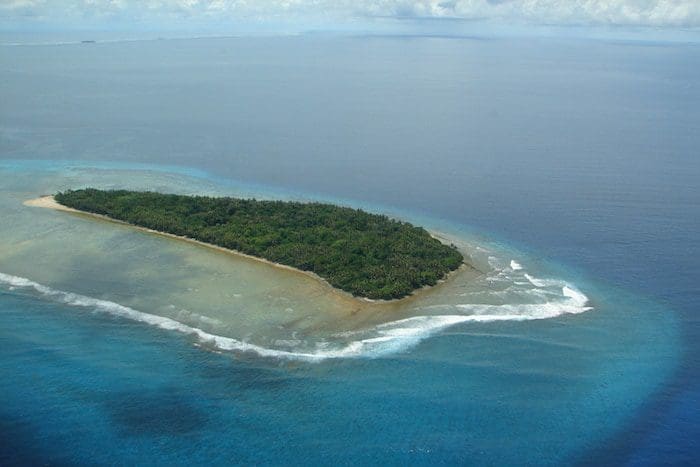
The Marshall Islands ship registry was formed in 1988. In 2001, it was expanded to allow those with commercial and private yachts to register as well, which has made the Marshall Islands a popular place to register over the last sixteen years.
The jurisdiction has also gained a lot of recognition over the years by having regional offices in major maritime cities around the world, allowing them to provide same day service to anyone, regardless of the location or time zone in which they reside.
The Marshall Islands Registry is the third-largest in the world and you can register under a one or three-year program.
You must be a Marshall Islands citizen, national, or qualified foreign maritime entity to register in the Marshall Islands. The terms “citizen” and “national” refer to Marshall Islands corporations, limited liability companies, partnerships, and associations of individuals. (You can easily complete the process to have a Marshall Islands company registered in your name so you can register your ship there.)
Assuming you complete all the necessary documents and meet all requirements, you can have your ship registered within 24 hours; you can also register your yacht as a ‘ship under construction’ if needed. You can obtain a U.S. cruising permit as a boat registered in the Marshall Islands and commercially compliant yachts can charter in Europe. In other words, you are not confined to the waters of the Marshall Islands alone, which is convenient for those who want to see more of the world.
As long as you meet proper flag requirements, yachts measuring 18m or longer that weigh less than 500 gross tons can be chartered out for up to 84 days as a private yacht limited charter (PYLC).
In addition to being white-listed under Paris and Tokyo’s MoUs, the Marshall Islands also meets the flag criteria for a low-risk ship under the Paris New Inspection Regime. Additionally, the Marshall Islands has been a part of the U.S. Coast Guard’s Qualship 21 roster for 11 consecutive years.
The Marshall Islands Registry is low tax and respected worldwide; the country is a presidential republic in free association with the United States and enjoys similar benefits to its British Overseas Territory counterparts making it a great jurisdiction for yacht registration.
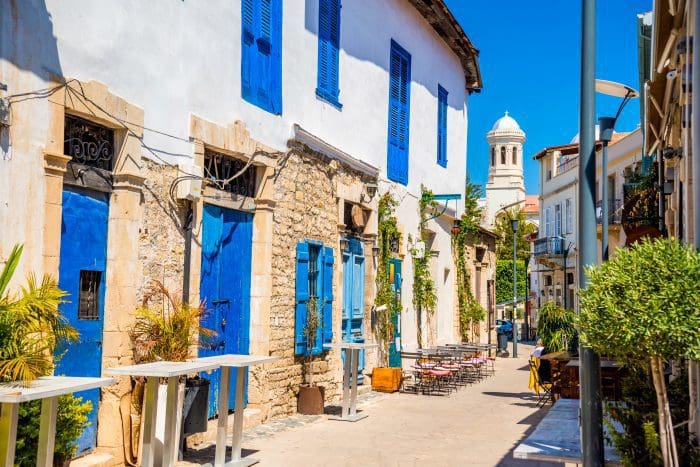
Cyprus is the third largest island in the Mediterranean after Sicily and Sardinia. The country’s ship registry ranks 10th in the world with a gross tonnage of over 21 million pounds.
A ship can be registered in Cyprus if more than 50% of the shares of the registering company are owned by a Cypriot or if your company is registered in the Republic of Cyprus. An offshore company can also be registered in Cyprus if the company’s control is in the hands of Cypriots.
The Republic of Cyprus can easily register your company under their flag so you can register your yacht there. The costs of yacht registration and management are the lowest in Europe , making the jurisdiction an ideal, convenient place for many owners to register their ship.
There are many tax benefits that come with yacht registration under the Cyprus flag. An owner whose ship is registered in Cyprus is fully exempt from income taxes from operations in international waters. Additionally, no tax is payable for the wages of the crew that operates in international waters. No tax is payable on any dividend received from a shipping company in Cyprus.
Cyprus has maritime offices around the world, allowing them to work with anyone anywhere at any time. Some of their main offices are located in New York, London, Rotterdam, Piraeus, Brussels, and Hamburg. Upon registering in one of these offices, you will have the benefits of flying an EU flag, which is respected worldwide. According to the EU registry, “Sailing under EU flags demonstrates strength and represents a strong reputation.”
Like some of the other countries I have mentioned, Cyprus has been white-listed among the Paris and Tokyo MoUs, meaning it is a high-quality flag with low risk compared to many other countries who have been gray or black-listed.
It should also be noted that Cyprus is excluded from the “list of targeted flag states,” which is kept by the U.S. Coast Guard. Cyprus’s absence from the list means that inspections of the yacht with a Cypriot flag are kept to a minimum and they will experience no unnecessary delays when entering and leaving ports.
Types of yacht registration:
Cyprus offers three types of registration, including provisional registration, permanent registration, and parallel (bareboat) registration.
1. Provisional remains in effect for 6 months; after expiration, it can only be renewed once more for 3 more months.
2. Permanent Yacht Registration goes into effect 6 to 9 months from the date your yacht was provisionally registered.
3. For Parallel / Bareboat Registration your ship must hoist the Cyprus flag and “Limassol” must be marked as your port of registry. Parallel-in lasts for two years and is renewable. For parallel-out registration, your ship must hoist the foreign flag rather than the Cyprus flag and your port of registry must be the port of the foreign country. Parallel-out lasts for three years and is also renewable.
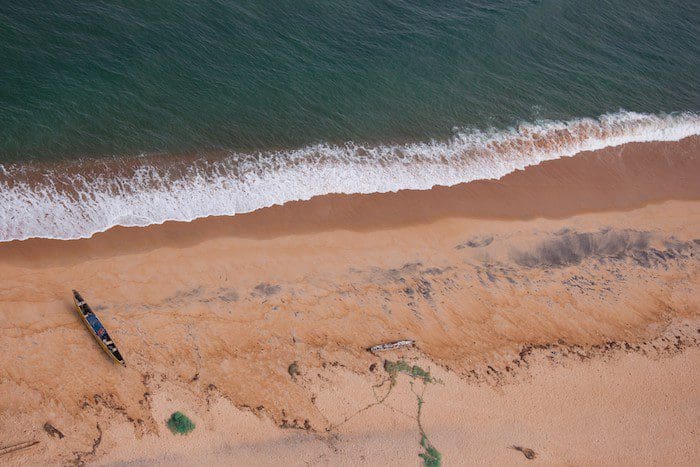
Liberia is the oldest democracy in Africa and one of the first offshore, zero tax jurisdictions. The Liberian ship registry is a favorite among owners of large vessels; the country has the second-largest registry in the world and makes up 12% of registered ships worldwide.
One of the perks of The Liberian Yacht Registration is that it is open to any ship-owner in the world and there are absolutely no restrictions on the nationality of your crew or country of construction. This makes Liberia appealing to many ship-owners who either cannot register somewhere because of their nationality or can only register by paying an additional fee.
Liberia has been white-listed on the Paris and Tokyo MoUs and has also been approved by the International Maritime Organization AND the U.S. Coast Guard. This, combined with the country’s other features, means that the Liberian Registry is known as “the world’s largest quality registry, renowned for excellence, efficiency, safety and innovative service”.
The following types of vessels can be registered in Liberia:
Vessels under construction, new buildings, vessels being transferred from other flags, offshore vessels, vessels in lay-up, and vessels involved in international, coastal, or domestic trading. You may also have a dual flag if your ship is bareboat registered.
The Liberian Registry is owned and operated by the United States. Additionally, service is available 24 hours a day, 7 days a week, making things very convenient for those wishing to do yacht registration under the Liberian flag. There are over 400 nautical inspectors, so there is always someone available to attend to vessels.
Vessels registered in Liberia are taxed with a fixed fee, which depends on the tonnage of your ship. The tax is applied yearly, so there should be no surprises. However, t here are no taxes on operations and your profits are not assessed.
The Liberian flag is accepted in many EU countries — the United Kingdom, Germany, and Holland are only a few countries in the European Union that accept the Liberian flag. In addition, Liberia is highly rated for safety and accident prevention, which makes this country even more attractive for your yacht registration.
Liberia is recognized every year for having high standards. The country has an above-average performance in safety and accident prevention as well as in independent statistical reports. Liberia also has a network of 100 security inspectors to inspect ships when necessary; this is something that was implemented post-9/11.
According to information provided by the Liberian Registry website, “The “Maritime Services Award” is for exceptional achievement or contribution to any service sector of the America’s maritime industry by a company, individual, or organization. According to Lloyd’s List criteria for this award, “The winner must be able to demonstrate how they have set themselves apart, going above and beyond best practice to offer the shipping industry something exceptional.”
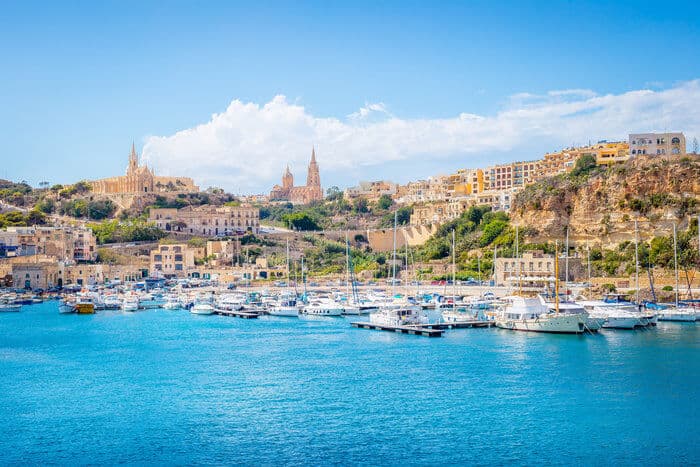
The Maltese ship registry is the largest in Europe and one of the largest in the world; it is one of the most popular countries in the world for pleasure yacht registration. The country has EU compliant legislation, clear laws relating to yacht mortgages, low registration costs and is well respected across the globe.
Malta became a member of the European Union in 2004, so yacht registration here comes with the perks of sailing an EU flag, including protection by the British Royal Navy. Like the other countries I’ve mentioned, Malta has been white-listed, providing ship-owners with a sense of security when you go through the yacht registration process under the Maltese flag.
If you’re an EU, EEA, or Swiss national, you can hold your vessel in your personal capacity. However, if you’re a non-EU/EEA/Swiss citizen you must hold your yacht through a Maltese or foreign company.
When it comes to taxes, it is important to note that companies operating commercial yachts out of Malta are exempt from income tax on any income generated by the operation of their yachts. They are also exempt from any VAT tax on the high seas. What sets Malta apart from many other countries besides tax policy is that there are no restrictions on the nationality of the master, officers, or crew of your ship.
Another perk that Malta shares with Liberia is that there is round-the-clock service, so you can feel safe and secure registering in the country. And, as long as you meet all flag requirements, any type of vessel can be registered — that means pleasure yachts, oil rigs, vessels under construction, and anything in between.
W hen it comes to the age or trading, boats between 10 and 15 years must pass inspection by an authorized inspector within one month of provisional registration and ships over 15 years old must pass inspection before being provisionally registered.
7. The British Virgin Islands
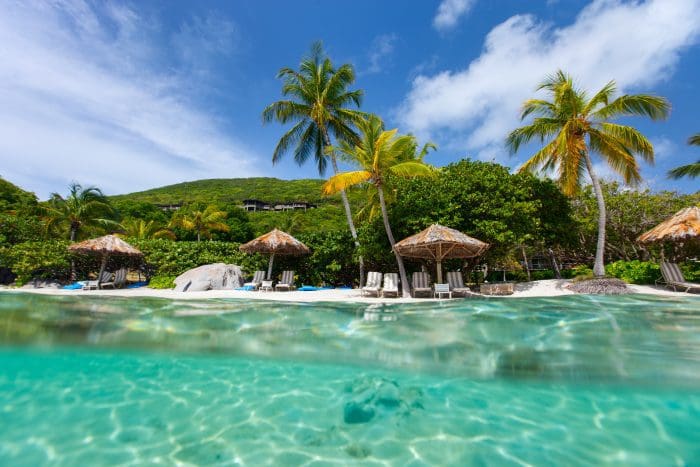
The British Virgin Islands is the latest country to join the Red Ensign Group (2014). Now, the British Virgin Islands can register any type of ship and any size. Not only that, yacht registration under the BVI flag grants access to all the ports in the world. There are restrictions with almost all other registries when it comes to this, so the fact that a BVI flag gives you access anywhere sets the country far apart from the rest.
Another advantage that makes the jurisdiction one of the most attractive is that the British Virgin Islands is tax neutral. The islands are outside the scope of the EU value added tax (VAT) laws, meaning that there is no sales tax when purchasing goods or services.
As is the case with the Cayman Islands and Malta, the Red Ensign Group flag grants protection by the British Royal Navy to those vessels registered under the British Virgin Islands flag. Similar to the other countries listed, you can register under the BVI flag even if you are not a citizen and even if you do not own a company there; you will need to register a company in the BVI to do so, but this can be completed in a matter of hours.
When it comes to the registration process, it usually takes two to six months, meaning that it is not as short as some of the other countries, but it’s still not too terribly long.
As I have mentioned in previous articles, the British Virgin Islands has one of the most stable governments and economies in the world, which makes ship owners who register there feel very safe and secure when compared to other countries who have more enemies or corruption within the government.
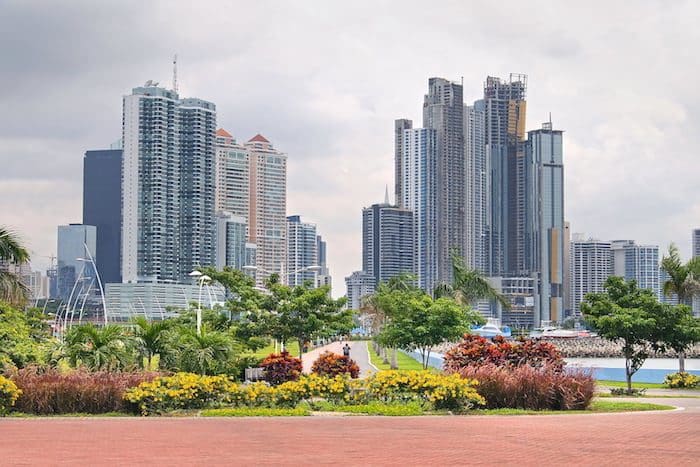
Panama is not only a popular place when it comes to offshore banking or getting a second passport, it also holds the largest ship registry in the world, having over 9,000 ships registered under the country’s flag.
Most countries require a minimum amount of weight, but Panama does not. The only exception to this rule is if your ship is older than 20 years, requiring that the ship is inspected in order to be registered.
There is usually some downtime when someone transfers their ship from one flag to another, but that is not the case when you are transferring to Panama. Panama has a very simple transferring process; for example, numerous other countries make you dry dock for inspection and Panama does not. Because their process is so easy, it eliminates the concern that ship and business owners have concerning downtime.
The good news for all the shipping companies, ship owners, and merchant shipping companies is that you can have dual ship registry in Panama, but if you were registered in the other country first, you must have consent from that country to register in Panama, too.
Instead of taking your ship’s size or tonnage into consideration, Panama charges a flat yacht registration fee to keep things simple. If you are not a Panamanian or an owner of a Panamanian business, you’ll pay a flat fee of $1,500 to register your yacht. If you are Panamanian, it costs $1,000 to register your yacht. Once you are registered, you will have access to Panama’s round-the-clock service.
Additionally, once you are assigned provisional yacht registration, you have six months to provide the proper vessel documentation to transfer your provisional yacht registration to permanent registration. Your yacht registration certificate is valid for two years and renewal costs are low.
Many countries require yacht owners to pay taxes when they register their ship, but Panama does not. There are also no taxes on profit that is made through international trade. You do not have to pay taxes on wages for your crew members either. The main reason people choose to register in Panama is this lack of taxes. When registering in Panama, people are legally reducing tax costs and that would not be the case if they were to register in many other jurisdictions.
There is no one best ship registry in the world, but there are many you can choose from to keep your investment safe. Finding the right one for you will depend on what you value when it comes to naval protection, taxes, privacy, and ease of travel.
If you have already registered your vessel, where did you choose to go for your yacht registration and would you recommend it to others? Feel free to comment below.
If you liked this article and are curious about how to apply the Nomad Capitalist lifestyle for yourself, check out the quick video below. Then, if you’d like some help doing it, click here to let me know .
GET ACTIONABLE TIPS FOR REDUCING TAXES AND BUILDING FREEDOM OVERSEAS
Sign up for our Weekly Rundown packed with hand-picked insights on global citizenship, offshore tax planning, and new places to diversify.
Are you a US citizen?
YOU MAY ALSO LIKE

The Best Nomadic Lifestyle Jobs (How to Land One)
Once reserved for the most adventurous, who had the ideal job, living as a digital nomad is now...

Digital Nomad Lifestyle: All Pros and Cons to Keep in Mind
This article discusses the digital nomad lifestyle and ways in which it can add immense value to...
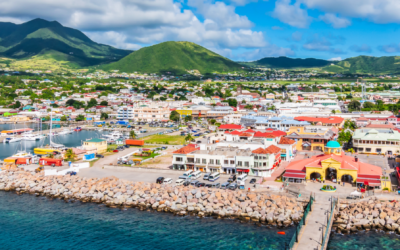
St Kitts Travel Guide for Families and Couples
This travel guide discusses everything you need to know before traveling to St Kitts. We will...

49 Digital Nomad Visas to Get: The Ultimate Digital Nomad Visa List
The world has dramatically changed in the past few years thanks to the pandemic. Now, workers and...
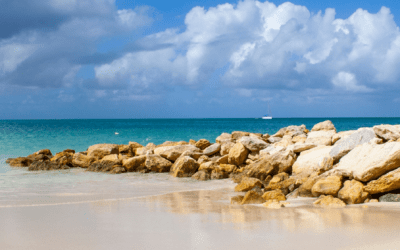
Traveling to Antigua: Our Favorite Luxury Hotels
This article discusses traveling to Antigua and our favorite luxury hotels there. The two sister...

The Best Beach Towns in Mexico for Families and Expats
This article discusses the best beach towns in Mexico for families and expats. We will also...
Get an Insurance Policy Against Your Government
Have options so that no one government controls you or your wealth. From strategic citizenship planning to real estate overseas, Nomad Capitalist has helped 1,500+ high-net-worth clients double their personal and financial freedom.
What do you want to accomplish?
Let us know your goal and we will tell you how we can help you based on your details.
REDUCE TAXES OFFSHORE
CREATE A GLOBAL PLAN B
DIVERSIFY AND PROTECT WEALTH

UNITED STATES

UNITED KINGDOM

EU COUNTRIES

Tax Amount ($US Dollars)
POLITICAL INSTABILITY
ECONOMIC INSTABILITY
MISSED OPPORTUNITIES
TRAVEL RESTRICTIONS
HIGH TAX LIABILITIES
RISK MANAGEMENT
MARKET PROTECTION
WEALTH PRESERVATION
OPPORTUNITY CAPITALIZATION
ESTATE PLANNING
Email Address
We handle your data according to our Privacy Policy . By entering your email address you grant us permission to send you the report and follow up emails later.

- List your Boat for Sale
- Buyer’s Rep
- Yacht Charters
- New Construction
- Maine Yacht Center
- Testimonials
- Recent Sales
- Yacht Videos
- Experiences
Basics a Buyer Should Know Regarding Yacht Registration
by Danielle Butler, Luxury Law Group
(Reprinted with permission from IYBA. Originally published in Compass Magazine , 2019)
The single most important decision a Buyer must make before closing on a yacht is where the yacht will be registered, as the Buyer should understand the benefits and drawbacks of each registry before making this decision. Presently, the most well-known yacht registrations are United States, Marshall Islands, Cayman Islands, St. Vincent and the Grenadines and the British Virgin Islands.
Let’s start with the “grand old flag” of the United States. Concerning documenting in the U.S. with the National Vessel Documentation Center (“NVDC”), the advantages of flying a U.S. flag are as follows: 1. There is an affordable documentation fee. 2. The renewal each year is free, as long as you renew within 30 days of the expiration date. 3. The yacht ownership may be via an individual, a partnership or a company. 4. Lenders may record mortgages or debt on the yachts abstract, meaning that, anyone will have access to this information. 5. Duplicative names are allowed. 6. The Certificate of Documentation (“COD”) notes all important yacht information and is internationally recognized. 7. Yachts can proudly fly the U.S. flag.
The disadvantages to documenting in U.S. are as follows: 1. The U.S. Coast Guard reports all newly documented yachts at the end of each month to each State’s Department of Revenue. 2. In most cases, the owner must be a U.S. citizen. 3. Depending on the State in which the company is formed, almost all U.S. companies are now required to list directors, officers, and sometimes shareholders, to the State in which the company was formed, diminishing the confidentiality. 4. Only U.S.-built yachts may charter in the U.S., unless the yacht owner has obtained a MARAD waiver to overcome this requirement. 5. For the most part, when chartering the yacht’s crew must be U.S. citizens. 6. Anyone can easily record a debt against the yacht with little or no verification necessary. 7. The COD is only valid for one year and must be renewed yearly. 8. The NVDC is usually always behind, so obtaining the COD takes, on average, two months.
Let’s turn to the good, the bad and the ugly regarding registering with the State of Florida. The advantages of registering in Florida are as follows: 1. Any person or company, domestic or international, can register a yacht in Florida. 2. There is an affordable registration fee after paying the sales tax and quick turn-around time to receive the registration. 3. Assuming all Federal issues are met, yachts registered in Florida may also charter in Florida without concern of taxation on the charter. 4. If the sales tax was paid, then the owner may list the yacht for sale without needing to give care, custody and control over to a licensed Florida Yacht Broker.
Concerning registering in Florida, the disadvantages are as follows: 1. If not documented with USCG, then Owner must display Florida numbers on the bow of the boat. 2. If the yacht is not also documented with the U.S., then the yacht may not be a U.S. flagged boat, as the nationality of the yacht is the same as the nationality of its owners. 3. Regardless of being registered in Florida, if the yacht is flying a foreign flag, then the yacht is still subjected to U.S. Customs regulations. 4. If the yacht is only registered in Florida, then it is not recommended for use outside of the U.S., except perhaps the Bahamas. 5. Although a mortgage can be recorded on the Florida Title, the mortgage is only considered a lien and does not afford the protections of a recorded mortgage.
Now, how does this all compare with registering with a foreign jurisdiction? Listed below are the advantages of foreign registration: 1. In most of the foreign jurisdictions common to yachting, any citizenship of that jurisdiction is not a requirement to form a company in that jurisdiction. 2. Most foreign jurisdictions provide better anonymity and asset protection. 3. Crew nationality is not an issue. 4. It is more difficult to record a maritime lien with foreign jurisdictions. 5. Foreign registered yachts may still opt to pay Florida sales tax and register in Florida. 6. There are more options for chartering, particularly in the Mediterranean.
The disadvantages to foreign registration are as follows: 1. It is more costly to obtain and maintain than documenting in the U.S. and/or registering with Florida. 2. In most jurisdictions, only one name can be used on a yacht per hailing port. 3. When cruising within the U.S., the yacht must either clear in and out of each Custom’s port or obtain a Cruising License which must be renewed each year. 4. When cruising within the U.S. even with a Cruising License, the yacht must call and report into each USCG district she enters.
The pros and cons listed above are not an exhaustive list; only a snapshot of what a Buyer must consider when selecting a registration for the yacht. Choosing a registration jurisdiction is a critical decision and will ensure that the Buyer enjoys the yacht and is not burdened with administrative issues post-closing. Lastly, if you don’t have the expertise to make these comparisons, or if the Buyer does not have a firm understanding of WHY they are going with a certain registry, then refer the Buyer to someone who does.
*The information offered in this column is a summary in nature and should not be considered a legal opinion.
Recent Posts
- Little Harbor Yachts: exceptional sailing yachts
- Getting Your Boat Ready for the Season
- Robot ships: Huge remote controlled vessels are setting sail
- STEP BY STEP GUIDE TO BRINGING YOUR BOAT OUT OF STORAGE
- Decommissioning Checklist

- Pre-Owned Yachts
- News & Social
- Search By Brand
- Rhode Island (401) 683-6070
- |
- Florida (954) 527-4230
One Maritime Drive, Portsmouth, RI 02871, USA
Yacht Dreaming
What Are the Benefits of Owning a Yacht and Yachting?

If you’re looking for an ideal location to register your yacht, Georgetown is the best choice! With its low taxes, efficient bureaucracy, and modern infrastructure, Georgetown provides yacht owners with a great solution for registration. The taxes are minimal, meaning you can save money, and the paperwork is organized with accuracy and speed. The infrastructure is up-to-date, so you can rest assured knowing that your yacht will be in good hands.
Why Georgetown is a Preferred Location for Yacht Registration
Georgetown is the preferred location for yacht registration due to its low taxes, efficient bureaucracy, and modern infrastructure. Low taxes within Georgetown’s jurisdiction make registering a yacht there an attractive option, as it will help save on costs. The bureaucracy is also efficient, so that the process of registering a yacht is not too long or difficult.
The infrastructure in Georgetown is modern, making it a great place to navigate and maintain yachts.
With these advantages, Georgetown is the ideal place to register a yacht. If you are looking to register your yacht, Georgetown is the perfect choice. With low taxes, an efficient bureaucracy, and modern infrastructure, you can rest assured that registering your yacht in Georgetown will ensure the smooth sailing of your vessel.
It will also provide you with the confidence of knowing that your yacht is in good hands. So why wait? Register your yacht in Georgetown today and enjoy the many benefits it has to offer.
Georgetown is an ideal location for yacht registration due to its low taxes. The government has carefully crafted a system which makes it possible for yacht owners to benefit from this economic incentive. Not only are the taxes low, but the regulations are convenient and straightforward.
This makes it easy to obtain and maintain your yacht registration without incurring high costs. Georgetown’s government provides benefits to yacht owners including exemptions on certain taxes and fees.
For yacht owners looking to save some money, Georgetown is the perfect choice.
This is especially true for those who are looking to register their yacht in the Caribbean region. With Georgetown’s low taxes and convenient regulations, you can easily get your yacht registered without breaking the bank. You’ll be able to enjoy the perks of having a registered yacht in one of the most beautiful regions in the world.
When it comes to yacht registration, Georgetown is the way to go. With its low taxes and efficient bureaucracy, you’ll have a hassle-free experience registering your yacht.
The modern infrastructure makes the process easy and you’ll be able to enjoy the benefits of having a yacht registered in a beautiful region. So don’t hesitate to make Georgetown the preferred location for your yacht registration.
Efficient Bureaucracy
When registering a yacht, one of the most important factors to consider is the efficiency of the bureaucracy. Georgetown offers a reliable and efficient bureaucratic system which makes yacht registration a breeze.
The paperwork is simple, straightforward and easy to understand. The process is quick – you can register your yacht in a matter of days.
The staff are knowledgeable and efficient, and the whole process is stress-free. The Georgetown registration process is also incredibly secure.
All documents submitted are verified and you can be assured that your yacht is registered in the safest and most efficient way possible. There’s no need to worry about any unexpected delays or paperwork issues. In short, Georgetown is the perfect place to register your yacht, offering an efficient and secure bureaucratic process.
Modern Infrastructure
If you are looking for a good location for yacht registration, consider Georgetown. The country’s modern infrastructure is one of the best features that it has to offer.
The infrastructure has been designed to cater to the needs of yacht owners. The roads, ports, and airports are all top-notch, ensuring that all of your yacht needs are taken care of. The country is well-connected to other major ports and countries, making it easy to travel to any destination that you may wish.
The country’s bureaucracy is also efficient and will help you get your yacht registered quickly and easily. The government has streamlined the process so that you can complete the registration quickly and without hassle.
You can be sure that you will have no problems with the paperwork, as all of the necessary documents are clearly laid out and ready to use.
Georgetown also offers some of the lowest taxes in the world when it comes to yacht registration. This ensures that you won’t have to break the bank when it comes time to register your vessel. The taxes are structured in such a way that they won’t end up eating into your profits. All in all, you can be sure that the taxes in Georgetown are unlikely to be an obstacle when it comes to registering your yacht.
When Is Yacht Week 2021?
Who Owns the Yachts Featured on Below Deck?
© 2024 Yacht Dreaming


Choosing the right yacht register

Gabriel Gonzalez, Register-a-Yacht, explains how buyers should choose where to register their yacht.
Registering a newly acquired yacht is often one of the last steps that yacht owners will need to complete before they can actually sail and enjoy the vessel. Registering a yacht is like obtaining a passport. You are effectively choosing the yacht’s nationality, with all the advantages and responsibilities that this entails: not least good functionality, constructive legislation, fiscal efficiency, well-recognised legal system, political stability and diplomatic clout. A yacht owner will want a flag that is competitive, accessible and enjoys a good reputation.
“Registering a yacht is like obtaining a passport. You are effectively choosing the yacht’s nationality, with all the advantages and responsibilities that this entails”
From a private law perspective, too, your choice of Flag State can be critical. Protecting the legal title of the registered owner or the interests of mortgagees is of great importance. In fact, many financial institutions may make it a condition that a yacht is registered in a particular Flag State when providing marine finance to yacht owners. Similarly, a yacht’s Flag State may affect the ability of the owner to secure competitive insurance cover.
So while yacht registration is simply a licensing procedure, involving broadly similar requirements in most jurisdictions, it is one that yacht owners should give very careful consideration to in order to ensure the best fit for their particular circumstances.
Many countries, including some that are landlocked, maintain their own yacht registries, but only a very few attract the majority of superyacht registrations worldwide. Their popularity is based upon careful analysis of the advantages that they offer to owners and their vessels.
There are three principal factors that will undoubtedly influence an owner’s choice of flag.
Getting the right legal and administrative framework
Firstly, a Flag State’s legal and administrative framework. By conferring nationality on a yacht, a Flag State acquires certain rights as well as certain responsibilities over it. The public law functions of registration give rights to diplomatic (and naval) protection and consular assistance by the Flag State. It might also offer other privileges, such as neutrality or access to particular waters, ports, activities or services. The private law functions of registration are to protect the title of the registered owner and persons holding security interests over the vessel.
“By conferring nationality on a yacht, a Flag State acquires certain rights as well as certain responsibilities over it.”
It is essential that a Flag State Registration is a key element to a yacht’s operation because there may also be specific yacht-related legislative, fiscal and other advantages (or disadvantages) attached to a particular kind of registration regime. For instance EU-flagged yachts will encounter fewer obstacles when obtaining permits and licenses to operate commercially within EU waters in comparison to non-EU flagged yachts. There are always exceptions to the rule and flags such as the Isle of Man, while remaining outside the EU, offer very similar benefits to EU flags when operating commercially. The Marshall Islands’ flag is also exempted for having to change from private to commercial status when operating commercially in France and Monaco.
VAT and other taxes
“The question of VAT liability is open to wide interpretation and should always be considered on a case-by-case basis.”
Secondly, the VAT status of the jurisdiction in which the yacht is to be domiciled. The question of VAT liability is open to wide interpretation and should always be considered on a case-by-case basis. Yet this is generally a matter of great concern to yacht owners and is often the main criterion in deciding where to register a yacht. The EU’s Temporary Admission (often referred to as Temporary Importation) rules are a mechanism that enables non-EU resident yacht owners to bring their yachts into Europe for a limited time, such as a holiday, and under certain conditions without having to pay VAT on the value of their yachts.
International rules and conventions
“Through registration and technical control procedures, the Flag State monitors the legality of the vessel’s condition and activities throughout its life”
Lastly, given the freedom that Flag States have to formulate their registration requirements, they are obliged to exercise administrative, technical and social controls – applying the international rules and conventions that govern navigation, usage, safety and crewing. Through registration and technical control procedures, the Flag State monitors the legality of the vessel’s condition and activities throughout its life, and intervenes through inspections and financial concessions.
As a back up to Flag State implementation, many of the International Maritime Organisation’s (IMO) most important technical conventions contain provisions for ships to be inspected when they visit foreign ports to ensure that they meet IMO requirements, a procedure known as Port State Control.
The IMO has encouraged the establishment of regional agreements on Port State Control – Memoranda of Understanding or MOUs – covering all of the world’s oceans, of which the best known are the Paris MOU (Europe and the North Atlantic) and Tokyo MOU (Asia and the Pacific). It is therefore of great importance that a Flag State can demonstrate a good track record on its performance under such MOUs. There is scope for a flexible approach and the expertise of a Flag State’s surveyors will be crucial for prudent assessment, good support on technical issues and to guarantee safety and seaworthiness.
In addition to these three main aspects, there may be many other reasons for choosing a Flag State. These could relate to: a yacht’s age, size or type; any ownership nationality restrictions; the size of registration fees and ongoing costs; the speed and ease of registration; the accessibility and availability of technical or administrative support. In some cases, it may simply be a matter of prestige.
“It is unquestionably the Red Ensign Group that lead the rankings of most popular flags”
Of all the Flag States available worldwide, it is unquestionably the British shipping registers, collectively known as the Red Ensign Group (REG), that lead the rankings of most popular flags. British law has enacted legislation that is specific to yachting and is a familiar, popular and workable system that is well known to practitioners, captains, brokers, bankers, builders, classification societies and service providers within the yachting industry. As well as having a reputation for efficient management and administration, they also benefit from British Consular support.
Within the REG, the following are the most common flags for yacht registration purposes – the UK itself, the Cayman Islands, the British Virgin Islands, the Isle of Man, Jersey, Guernsey and Gibraltar. These seven jurisdictions offer five different tax scenarios, with the UK – as a full EU Member state and part of the EU Customs Union and VAT area – lying at one extreme, with the Cayman Islands and BVI – which are wholly outside the EU – at the other.
In between lie the Isle of Man, the Channel Islands and Gibraltar, which have differing relationships with the EU. The latter in particular, being part of the EU territory but outside the EU Customs Union and VAT area, can offer a less bureaucratic procedure for obtaining chartering licences in Europe while at the same be of use to non-EU residents in benefitting from the Temporary Admission regime.
“Flying the British flag is not always the solution and other Flag States, such as Malta or the Marshall Islands for example, have been very successful in providing yacht registration”
Notwithstanding all the benefits that the REG may offer, flying the British flag is not always the solution and other Flag States, such as Malta or the Marshall Islands for example, have been very successful in providing yacht registration to yacht owners and yacht management companies.
The pragmatic approach of Malta with tax advantages for commercial yachts and a leasing scheme for pleasure yachts has made it a very attractive alternative to the UK for those wishing to flag a yacht within the EU. Marshall Islands-registered yachts have automatic rights to a cruising permit for sailing in US territorial waters and qualifying private yachts are permitted to charter up to 84 days a year, subject to detailed surveys when on charter. Together with the new Yacht Engage in Trade (YET) regime, the Marshall Islands is taking a lead in facilitating the mixed use of yachts. Other flags to be considered, within and without the EU, are Madeira, Italy, Luxembourg, Cyprus, the Cook Islands, St Vincent & the Grenadines and The Bahamas.
Finally, it is worth mentioning that the use of a company for yacht ownership purposes may also facilitate legitimate tax and estate planning scenarios, provide access to certain flags by circumventing nationality restrictions and offer enhanced levels of confidentiality. Using a company to own and operate a yacht not only provides privacy, but will also limit the owner’s liability in the event of a claim. Contracting with third parties through an entity provides legal security and may often simplify sale and purchase processes.
For more details please contact: [email protected]
Subscribe to our free newsletter
For more opinions from Superyacht Investor, subscribe to our email newsletter.
Subscribe here

© Specialist Insight, 2024. All rights reserved. Website design and development by e-Motive Media Limited .

Why Are So Many Yachts Registered In Georgetown?
Table of Contents:
Yacht ownership is a significant aspect of wealth and influence, with billionaires setting new standards for yacht ownership. The Cayman Islands are a popular jurisdiction for offshore vessel registration due to tax benefits, including the ability to prove nationality and secure title to movable assets. The law offers various types of yacht registration, including full, interim, provisional, ship under construction, and demise charterbareboat registration.
The flag chosen from a transom can impact privacy, taxes, exposure to liability, and vessel success as a commercial enterprise. Georgetown is the preferred location for yacht registration due to its low taxes, efficient bureaucracy, and modern infrastructure. Almost 80% of yachts and superyachts are registered in the Cayman Islands, Gibraltar, and Isle of Man. Sailing under one of these flags provides protection of British maritime law and is favorable for setting up a Cayman Islands company and operating commercial or passengers vessels.
The Cayman Islands are a tax haven with open rules for owning and registering yachts, making them an ideal location for yacht owners. Many people consider Holland as an ideal location for yacht registration due to its flexibility and straightforwardness. Holding the registration of a large number of sizable yachts not only brings revenue to the government and its shipping registry but also provides a tax exemption.
Gibraltar is preferred by yacht owners for exemption from VAT charges and tax on sale. The Cayman Island Shipping Registry has the largest number of yachts, and the port of George Town is the homeport of the majority. The stable political and economic environment of the Cayman Islands makes it a safe and reliable jurisdiction for yacht registration.
📹 Imagine dating millionaire girl! 😍 DM for Miami yacht rentals 🛥️ #miamipromoters #miamiboatrentals
I just met this girl in the bar and she says she owns this yacht I don’t have you owned it for how much you paid for it what do you …

Why are so many yachts registered in Valletta?
- Yachts may be registered on behalf of legally constituted corporate bodies or entities irrespective of nationality.
- Twenty four hour, seven days a week service in response to urgent matters.
- Low company formation, ship registration and tonnage tax costs
- Maltese law provides for registration of yachts that are being built or equipped.
- Attractive tax incentives to yachts and superyachts owners encouraging commercial operation.
- No restrictions on the sale or mortgaging of Maltese registered yachts and superyachts.
- A dynamic registration with one of the largest ship registers in the world and very active in EU for and international organisation such as the IMO.
- A sovereign state, member of the European Union with political, fiscal and social stability.
Availability of a whole range of maritime services including very reputable and experience legal and corporate services supporting registration, management and administration.

Why are so many yachts registered in Isle of Man?
The long history of political and financial stability on the Isle of Man and OECD “white-listed” jurisdiction makes it beneficial to register ships on the Isle of Man. The Isle of Man Ship Registry accepts almost all vessel types, including merchant ships, offshore vessels and private and commercial yachts.
Fast, professional service at low cost makes the Isle of Man an ideal choice for ship and yacht registration. In addition, the Isle of Man offers the full range of professional maritime services to assist with the registration, ownership and management of vessels and crew.
- Elite Customer Service. Pragmatic approach to regulation with a focus on finding solutions and building relationships
- Response time to technical/registration queries is normally within same day
- Local Representatives in key markets including Japan, China, Hong Kong and Greece
- Technical expertise in-house with survey and policy teams on hand for consultation and reliable advice
- Network of surveyors in key survey locations around the World
- Simple regulations applying international convention standards with no additional requirements.
- Digital Certification meaning original certification can be onboard within minutes
Where are the most yachts registered?
Presently, the most widely used yacht registries are the United States, the Marshall Islands, the Cayman Islands, St. Vincent and the Grenadines and the British Virgin Islands.
Why are so many yachts registered in Jamaica?
The Full Story. The international shipping industry is very lucrative, providing revenues for many countries, including Jamaica.With this in mind, the Government is ensuring that the country has full access to all the benefits that can be derived from the sector.Through the Maritime Authority of Jamaica (MAJ), the country is promoting its international shipping registry, which allows foreign owned vessels to register under the Jamaican flag for a fee.This registration of internationally owned vessels comes under the Jamaica Ship Register (JSR), which was officially launched in 2000, and represents documentation of all ships registered with Jamaica.Eric Deans, Director of Shipping and Policy Research at the Maritime Authority of Jamaica informs JIS News that the concept of registration is the process of granting title and nationality to a ship.”A ship operates in an international environment, so it has to come under some law, some jurisdiction. When you’re outside the territorial waters of all countries, meaning you’re in international waters now, if there’s a incident that take place on board, it has to come under some law in order to operate and that is the law of the flag where the vessel is registered,” he adds.Currently, there are approximately 45 vessels registered under the Jamaican flag. Mr. Deans notes that this number may seem small, but it’s because the MAJ focuses on quality, so substandard ships are not allowed to register with the JSR. He says Jamaica has rejected over five hundred ships that had wanted to register with the JSR, because they were of inferior quality.”When we started, we focused on a platform of quality and there were a lot of substandard ships which were trying to get into our registry, so we ended up rejecting a lot of ships. We are not going so much after numbers, but we want to protect the reputation of Jamaica. Some other flags have very bad reputations, all the substandard ships causing collisions, casualties are to be found in their flag.What we’re trying to do is to ensure that Jamaica operates a quality registry and we protect the interests of both the crew and other users of the sea,” Mr. Deans tells JIS News.Jamaica operates an open registry, which means that vessels from anywhere in the world can register under the Jamaican flag. This is in contrast to a closed registry, an example of which is the United States of America, where only US owned vessels can operate under that country’s flag.Mr. Deans notes that although there is intense competition among the open registries of the world, it is still profitable for Jamaica to remain in the competition, as ships are continuously changing owners.”They’re approximately 40,000 ships in the world, and there are about 4,000 being built each year. There are new ships, and ships are changing hands, so it’s not just the existing ships, but there are new ships coming on and there are ships that are changing hands, which is when typically, a ship is registered under a new flag,” says Mr. Deans.The main benefits of registering under the Jamaican flag are numerous and are related to tax breaks, as Jamaican registered ships are only required to pay a one time registration fee and an annual fee, called a tonnage fee.Another benefit is that ship owners are allowed to use crews of other nationalities, so they do not have to use Jamaican crew, while if they are registered with a closed registry, such as the US, they would have to use American crew members, who may be more expensive.”Another advantage we have over some other registry, like the largest in Panama, is that in registering with Panama, all the documentation has to be in Spanish. We are an English speaking country, so all our documentation is in English. Our laws come under the English common-law system, which has a long history and is recognized in the maritime world.it’s the primary law that is used in maritime affairs,” Mr. Deans explains.”We have double taxation agreements with many countries, so the benefits they get of no taxes in Jamaica is transferred back to their homelands, whether they’re US owned, or British owned or from Japan or Germany,” Mr. Deans adds.Registration ensures that the details of the vessel, such as ownership and country of origin are recorded, and upon registration, the owner is given a registration certificate. This certificate acts as a title and the ship is now considered a Jamaican vessel.”What we do in registering is get information about the owner and the vessel, the particulars about the vessel and trace its ownership to make sure it was not stolen. We also record mortgages on a vessel.if the ship is secured through a mortgage, the bank can register that mortgage with us. The crew on board, their certificates have to be endorsed by our administration to make sure that whatever training they got is up to the international standards required for any position that they serve in,” says Mr. DeansThe Maritime Authority takes care of ships that operate in Jamaica’s maritime waters. It is also responsible for the welfare of seafarers and the protection of the marine environment, ensuring that ships and other users of the sea do not pollute the marine environment.”We also play a role in developing shipping, in other words encouraging maritime business to expand and operate in Jamaica,” says Mr. Deans.

Why are yachts built in Netherlands?
Part of the reason for the dominance of Dutch yacht builders in the superyacht industry stems from Holland’s prestigious history of boat building, which stretches back centuries and was perfectly poised to make the shift to constructing luxury yachts during the 20th century. The word ‘yacht’ originally comes from the Dutch word ‘jacht’, meaning hunt.
Some of the towering names of the yachting world have emerged from Holland, with the great heritage yards Amels, Hakvoort, Royal Huisman, De Vries and Royal Van Lent more recently joined by other outstanding Dutch yacht builders such as Heesen, Vitters, and Oceanco.
Dutch shipyards are heralded not only for their world-class build quality, high tech yards, and innovation, but are also renowned for reliability in finishing projects on time and on budget. With Dutch shipyards producing many fully-custom ‘one-off’ yachts, many of the yachts launched from Holland’s shipyards are extremely iconic and often win international awards.

Why do people register their yachts in the Cayman Islands?
The Cayman Islands is a jurisdiction of choice for offshore vessel registration for many reasons, the most popular of which being the tax benefits. As a tax-neutral jurisdiction, yacht owners registered in the Cayman Islands can save thousands in fees related to taxes, registration, and VAT alone. The Cayman Islands also offers convenient ease of marine vessel access with three ports of registry and several marinas across the three islands.
Another benefit of registering vessels in the Cayman Islands is that they are considered British vessels and are therefore protected by the British Royal Navy. Furthermore, these vessels fall under the Category 1 British Registry within the Red Ensign Group. This is considered a first-class flag and one of the top flags in the world by the International Chamber of Shipping (ICS). Vessels registered under CISR also benefit from its whitelist and low-risk status at all major ports worldwide, and with 15 global locations yacht owners are afforded 24/7 support. CISR-registered vessels can also participate in the International Maritime Organization (IMO) using the British status of their vessel.
Yacht owners registered in the Cayman Islands also benefit from considerably fewer inspections, less hassle, more support, and smoother sailing…no pun intended.
The Cayman Islands has set itself above other tax-free locations such as Malta, Singapore, and Cyprus by offering yacht owners and shipping companies a genuine physical presence in which to place their staff in turnkey offices and generate legitimate tax-free international business income. This is accomplished through Cayman Maritime & Aviation City, a component of Cayman Enterprise City (CEC) set up specifically for businesses within the maritime industry so they can take advantage of the benefits offer by operating from the award-winning Special Economic Zone. The Cayman Islands Government has granted appealing concessions to such companies.

Why are boats registered to George Town?
There are no income, capital gains, or other taxes in place by the Cayman Islands on vessel owning companies. The Cayman Islands Shipping Registry is a favorite among people who own both pleasure and commercial yachts worldwide. This ship registry has been at the Port of George Town, Cayman Islands since 1903.
For the person who has successfully opened an offshore bank account, got a second passport and is living the lifestyle of their dreams traveling the world, the time has come to move on to the next level of flag theory.This new level is one where the focus shifts from acquisitions that are largely for diversification purposes toward purchases meant purely to improve your lifestyle– like boating.
For many who reach this stage, the next step is to combine travel and leisure by investing in the purchase of a yacht.
Unlike buying a new car – or even a house – buying a yacht is an investment of an international nature, and deciding upon the best country for yacht registration is a decision for which you need professional advice so you do not expose your assets to unnecessary taxes and liabilities. If you go into the process uneducated, your exciting new purchase might just become nothing more than a hole in the water into which you pour unnecessary amounts of money.

What city has the most yachts in the world?
Every year, Fort Lauderdale’s waters welcome more than 2,000 superyachts—private yachts measuring 80 feet or more. These grand vessels often pause in the city en route to the Caribbean for the winter or as part of their global journeys. With numerous marinas and shipyards expertly designed to accommodate these massive yachts, the city is the favored destination for the discerning yachting community.
The marine industry within Fort Lauderdale is nothing short of monumental. Boasting a thriving ecosystem of equipment manufacturers, vendors, yacht brokers, and service enterprises, this sector generates a staggering $9.7 billion in economic impact within Broward County. Impressively, the marine industry stands as the second-largest economic segment in Greater Fort Lauderdale, trailing only behind tourism.
Fort Lauderdale International Boat Show – Showcasing Superyachts.

Where is the yacht capital of the world?
As every Floridian knows, “The Sunshine State” comes with its perks. Every year, South Florida receives about 3,000 hours of sunlight. This means boating galore for those who appreciate sailing the open seas. The City of Fort Lauderdale which contains over 300 miles of inland waterways houses around 50,000 yachts, giving the city the apt name “The Yachting Capital of the World”. At Aspire Yacht Sales, we’ve perfected the art of yacht sales in Fort Lauderdale and know firsthand the demand our yachts have.
The entire city lives for boating and direct their lives around the sport. The boating industry in Fort Lauderdale alone employs over 130,000 people. Because of its easy access to the Caribbean and tropical weather, the city is great for any aspiring boat owner or boat collector. If you’re a fan of cruises, Fort Lauderdale houses two of the largest cruise ships and an international boat show, the largest in the world.
Fishermen, tourists, and boaters alike all gravitate towards the city from international waters regularly. Because the Gulf Stream exists close to the shore, it’s a great area for fishing and the nearby coral reefs that scuba divers flock to. Fort Lauderdale is perfect for yachting and boating and fishing. Everyone has something to do in these waters.

Which city has the most yachts?

Is Jeff Bezos yacht still in the Netherlands?
Running the yacht will cost Amazon founder Jeff Bezos $25 million a year. In the early hours of Tuesday morning, Jeff Bezos’ superyacht was quietly moved out of the Dutch shipyard where it was built, according to the German magazine Der Spiegel.
We at moneycontrol use cookies and other tracking technologies to assist you with navigation and determine your location. We also capture cookies to obtain your feedback, analyse your use of our products and services and provide content from third parties. By clicking on ‘I Accept’, you agree to the usage of cookies and other tracking technologies. For more details you can refer to our cookie policy.
*We collect cookies for the functioning of our website and to give you the best experience. This includes some essential cookies.
Cookies from third parties which may be used for personalization and determining your location. By clicking ‘I Accept’, you agree to the usage of cookies to enhance your personalized experience on our site. For more details you can refer to our cookie policy.

Where do rich people go yachting?
Top Yachting Destinations for the Ultra-RichSt Lucia. The Eastern Caribbean’s premier yachting nation, St Lucia, is home to one of the world’s most fascinating yachting scenes. … Antigua & Barbuda. … British Virgin Islands. … The French Riviera. … Fort Lauderdale (US) … Greece. … Malta. … Thailand.
📹 How Ship Operators Dodge Taxes
Many shipowners evade taxes and labor regulations by flying flags of convenience, registering their vessels to countries other …

Related Articles:
- Why Are Super Yachts Registered In Georgetown?
- Why Are Most Yachts Registered In The Cayman Islands?
- Why Are Yachts Registered In George Town?
- Why Are Private Yachts Registered In Foreign Countries?
- Where Are Most Private Yachts Registered?
- How Many Devos Yachts Registered In The Caymans?

Debbie Green
I am a school teacher who was bitten by the travel bug many decades ago. My husband Billy has come along for the ride and now shares my dream to travel the world with our three children.The kids Pollyanna, 13, Cooper, 12 and Tommy 9 are in love with plane trips (thank goodness) and discovering new places, experiences and of course Disneyland.
You may also like

Why Did Suri Cruise Change Her Name?

Why Is There Like Making Love In A Canoe?

Why Kinds Of Fish In Hawaii Snorkeling?

Why Do I Need A Snorkel Vest?

Why Is Sailing Around The Globe Termed As Circumnavigation?

Why Is A Russian Yacht Strolling Around Puerto Rico?
Add comment, cancel reply.
Your email address will not be published. Required fields are marked *
Save my name, email, and website in this browser for the next time I comment.
Recent Posts

Why Are Cruise Ships Registered In Other Countries?

What To Yel When Sailing?

Can You Bring Soda On A Holland America Cruise?
Latest comments.
- TaylorJohndrow on Did Anna Delvey Really Stay On A Yacht?
- ktiger417 on When Is The Best Time For A Disney Cruise?
- jamesdunn9609 on How Many Ships Sailed To The Chesapeake?
- mossybro9847 on When Is The Best Time For A Disney Cruise?
- kikky811 on When Is The Best Time For A Disney Cruise?
Tip of the day!

How Durable Are Inflatable Kayaks?

Featured Living Neighborhood
A ride aboard the ‘georgetown heritage’ , by christopher jones • august 11, 2022 0 1819.
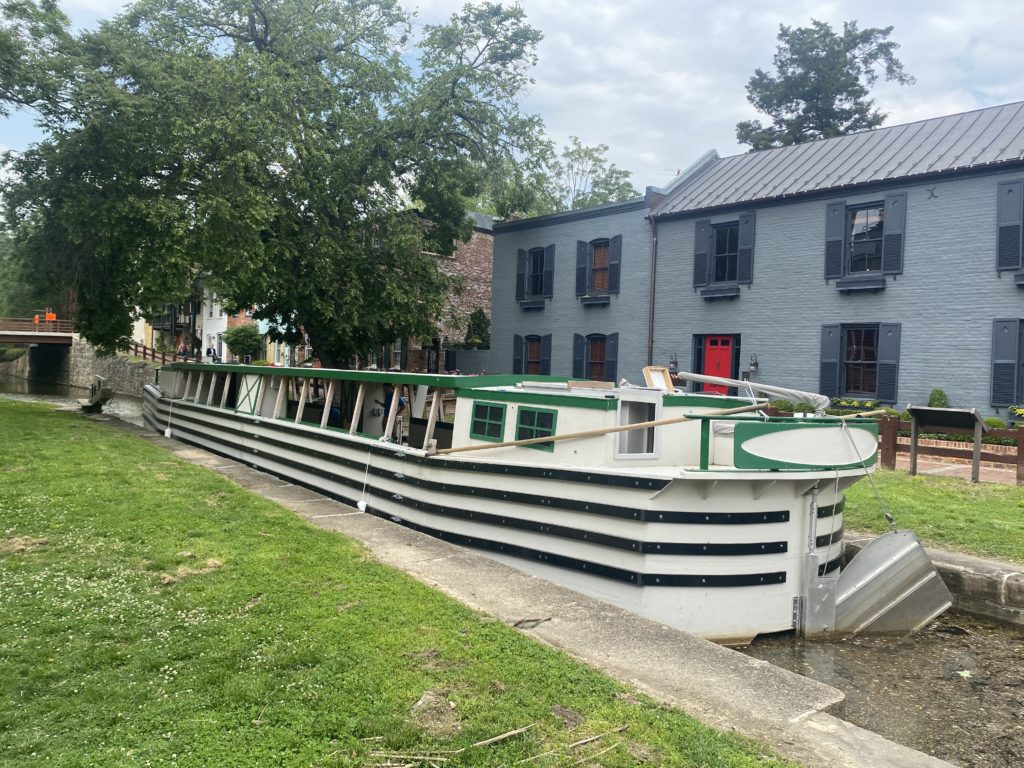
The original canal boat was towed by mules (hence the term “towpath”), but the “Georgetown Heritage” has several modern upgrades, including quiet electric engines fore and aft, restrooms and a sound-system.

Historical interpreters await the next tour aboard the “Georgetown Heritage.” Photo by Chris Jones.

Historical interpreter sounds the horn aboard the “Georgetown Heritage.” Photo by Chris Jones.
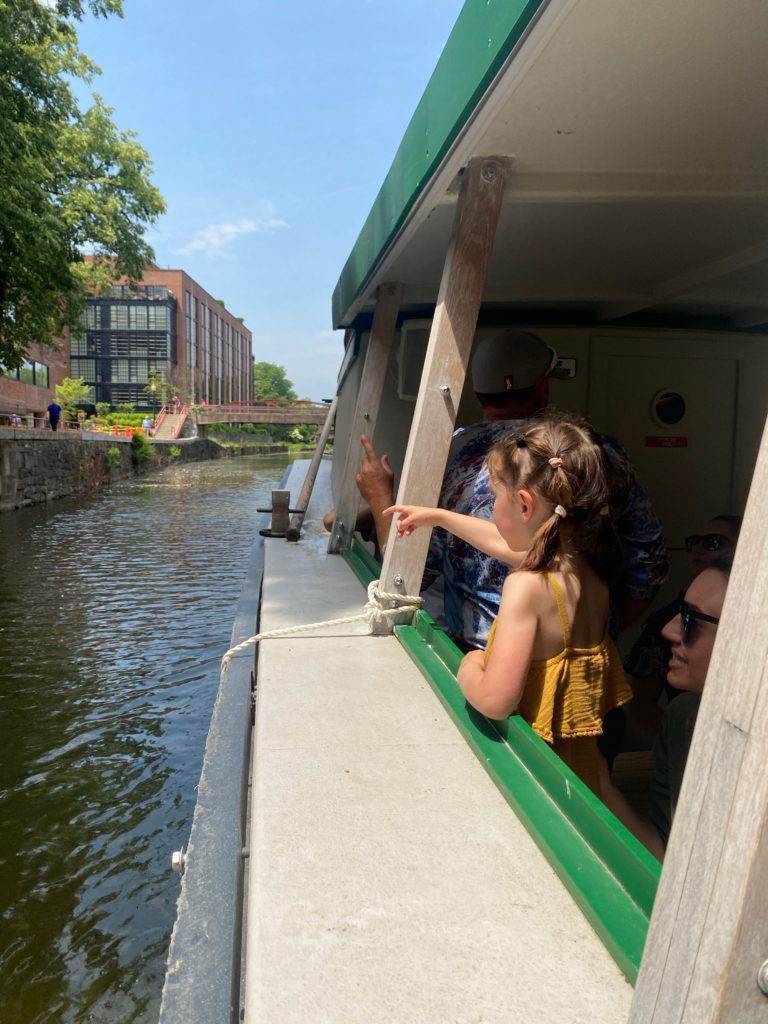
A young passenger points out the sights on the “Georgetown Heritage” boat tour. Photo by Chris Jones.
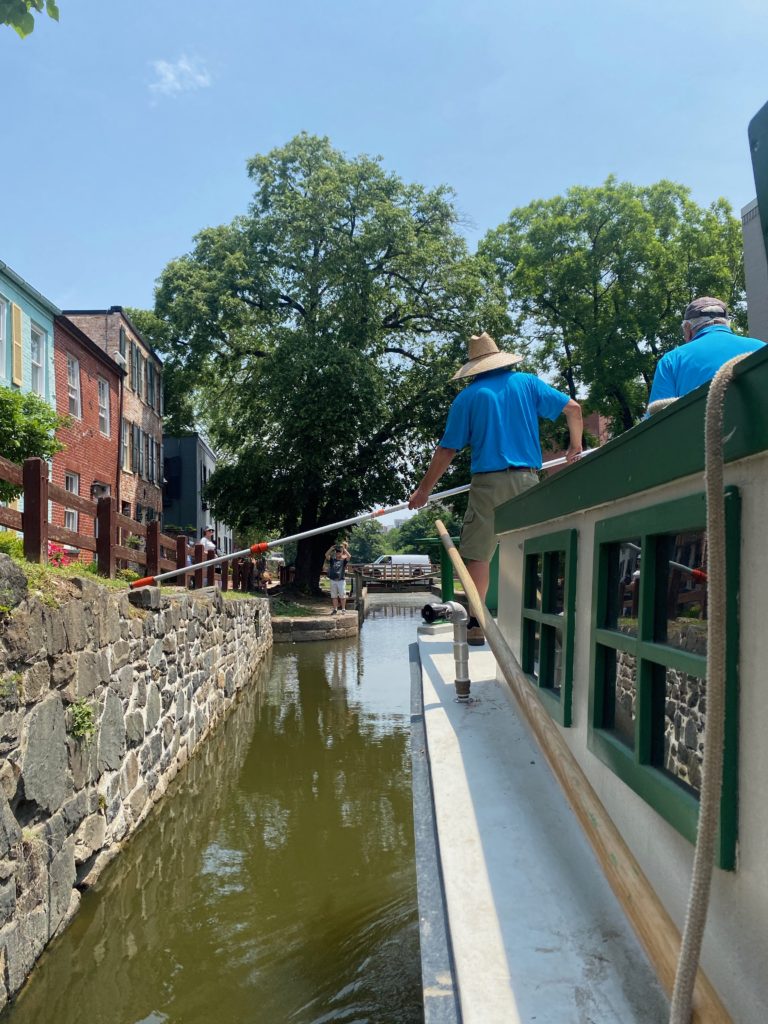
7. For deck hands, navigating the narrow passages of the C&O Canal can be challenging. Photo by Chris Jones.
tags "The Georgetown Heritage" African-American labor Allegheny Mountains Antietam Boy Scouts of America C&O Canal C&O Canal Towpath canal locks canal technology Colossus of Rhodes Fort Frederick Fort Pitt Georgetown Aqueduct Georgetown BID German-American labor Harpers Ferry Irish-American Labor John Brown John Quincy Adams key bridge labor Lock 3 Mark Stover National Park Service Potomac River pyramids of Egypt Richard Nixon Robert E. Lee Roudebush Yacht & Engine Works slavery Stonewall Jackson The Great Wall of China Thomas Jefferson Streets NW U.S. Civil War Underground Railroad William O. Douglas
Leave a reply cancel reply.
Your email address will not be published. Required fields are marked *
Save my name, email, and website in this browser for the next time I comment.

The News hasn't changed...the delivery has.

Did you know we're turning 70 this year?
Every Monday and Thursday, get the latest news right to your inbox
Advertisement

The global authority in superyachting
- NEWSLETTERS
- Yachts Home
- The Superyacht Directory
- Yacht Reports
- Brokerage News
- The largest yachts in the world
The Register
- Yacht Advice
- Yacht Design
- 12m to 24m yachts
- Monaco Yacht Show
- Builder Directory
- Designer Directory
- Interior Design Directory
- Naval Architect Directory
- Yachts for sale home
- Motor yachts
- Sailing yachts
- Explorer yachts
- Classic yachts
- Sale Broker Directory
- Charter Home
- Yachts for Charter
- Charter Destinations
- Charter Broker Directory
- Destinations Home
- Mediterranean
- South Pacific
- Rest of the World
- Boat Life Home
- Owners' Experiences
- Conservation and Philanthropy
- Interiors Suppliers
- Owners' Club
- Captains' Club
- BOAT Showcase
- Boat Presents
- Events Home
- World Superyacht Awards
- Superyacht Design Festival
- Design and Innovation Awards
- Young Designer of the Year Award
- Artistry and Craft Awards
- Explorer Yachts Summit
- Ocean Talks
- The Ocean Awards
- BOAT Connect
- Between the bays
- Golf Invitational
- BOATPro Home
- Superyacht Insight
- Global Order Book
- Premium Content
- Product Features
- Testimonials
- Pricing Plan
- Tenders & Equipment
The Register is the definitive guide to the largest, fastest and most iconic superyachts in the world. BOAT International’s list of the top 25 largest yachts in the world profiles the biggest, most innovative and most notable motor and sailing superyachts on the water today.
Find a breakdown of the 50 largest sailing yachts in the world and the 50 largest luxury yachts built in the US . For yacht owners with a passion for the exploration, there is the top 20 expedition yachts – superyachts that meld luxury yacht amenities with explorer yacht capabilities – and for those with a need for speed, we present the top 20 fastest superyachts plying the oceans.
From our partners
Sponsored listings.
Off the Hook Yachts Acquires Georgetown Yacht Basin
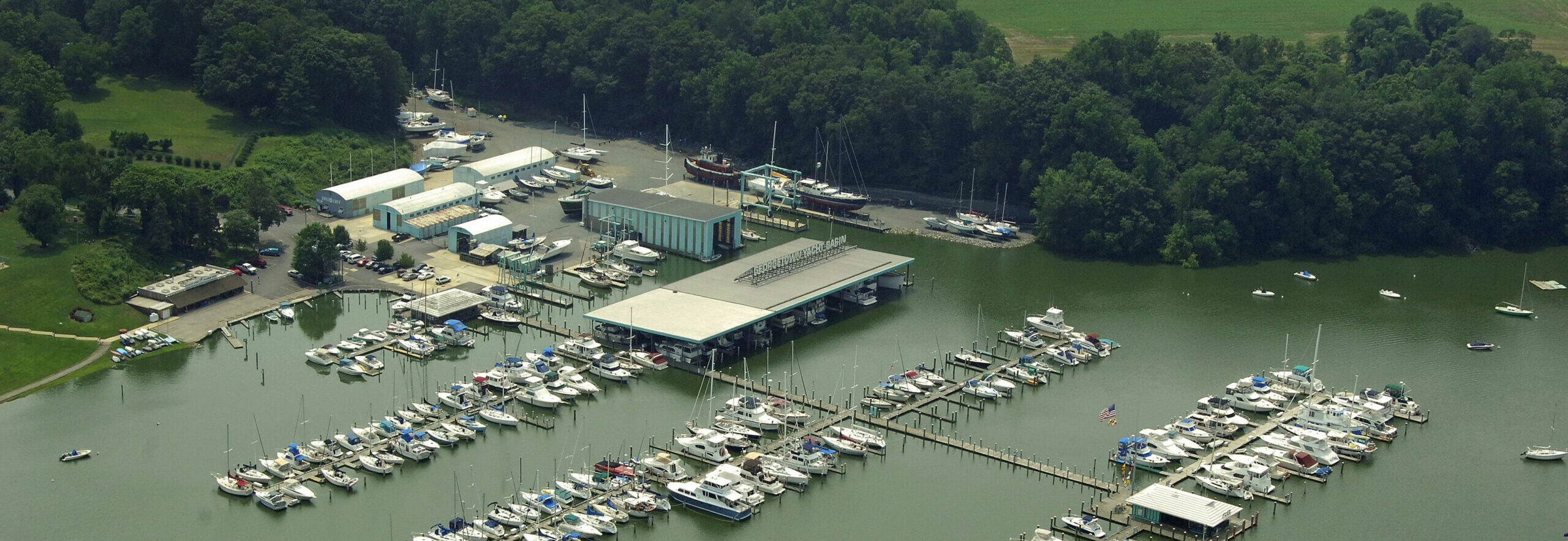
Jan 10, 2023
Off the Hook Yachts Acquires 300-Slip Marina in Georgetown Maryland
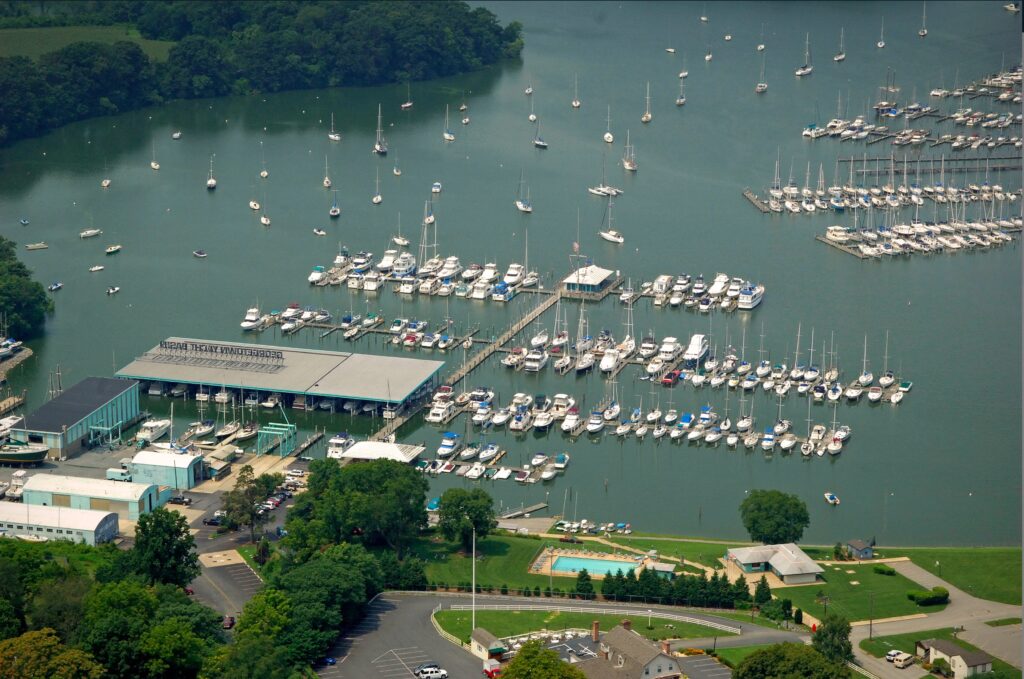
The Acquisition
Off the Hook Yachts is proud to announce the acquisition of Georgetown Yacht Basin (GYB) now rebranding under Georgetown Yacht Haven – a 300-boat slip full-service marina located on the Sassafras River in Georgetown, MD. Off the Hook plans to restore the yacht basin to its former glory and reconnect with the local community in order to establish it as a household name in the area.
As our founder is originally from Maryland, this will complement our current presence in the area, along with our MD sales team, which currently operates out of Bay Bridge Marina. The acquisition of the marina will allow us to expand on sales, service, and custom-built Nor-Tech Performance Boat sales in the region. Georgetown Yacht Haven has 300 slips, two paint sheds that can hold up to a 110-foot yacht, a 110-ton travel lift, a fuel dock, a swimming pool, bathhouses, and a complete ship store, along with many other amenities. GYH controls the largest travel lift in Northern Chesapeake Bay.
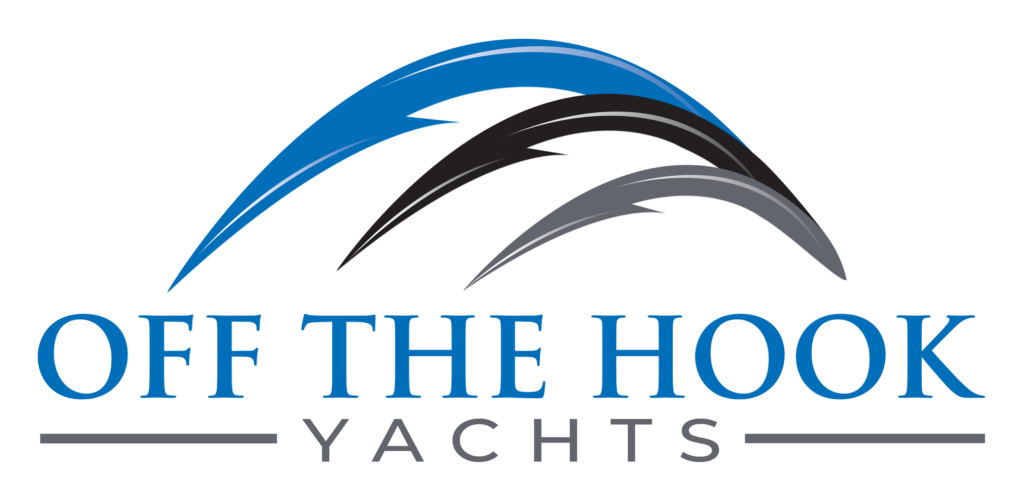
About Off the Hook Yacht Sales
Off The Hook Yacht Sales NC, LLC, based in Wilmington, North Carolina, was founded in 2012 by Jason Ruegg and has now become the largest marine wholesaler in North America. The company provides wholesale purchasing services for brokerages, new boat dealers, and private individuals, and has become a household name at the largest brokerages and dealerships in the Country. Off the Hook Yachts headquarters is in Wilmington, North Carolina, where it remains today. We have 12 other locations currently in the USA, with expansion plans for 2023. Additionally, OTH is proud to represent Nor-Tech Hi-Performance Boats from Georgia to Maine and Yellowfin Boats from Miami to the Florida Keys.
About Georgetown Yacht Haven
Georgetown Yacht Haven was originally constructed in 1949. The marina is situated on 14.26 acres along the Sassafras River. This river is known for its very deep brackish to freshwater – making it ideal for boating in the Upper Chesapeake area. Georgetown Yacht Haven is a full-service marina and shipyard with a restaurant and hotel on site. For more information contact Tristan Price at (410) 648-5112 / [email protected] .
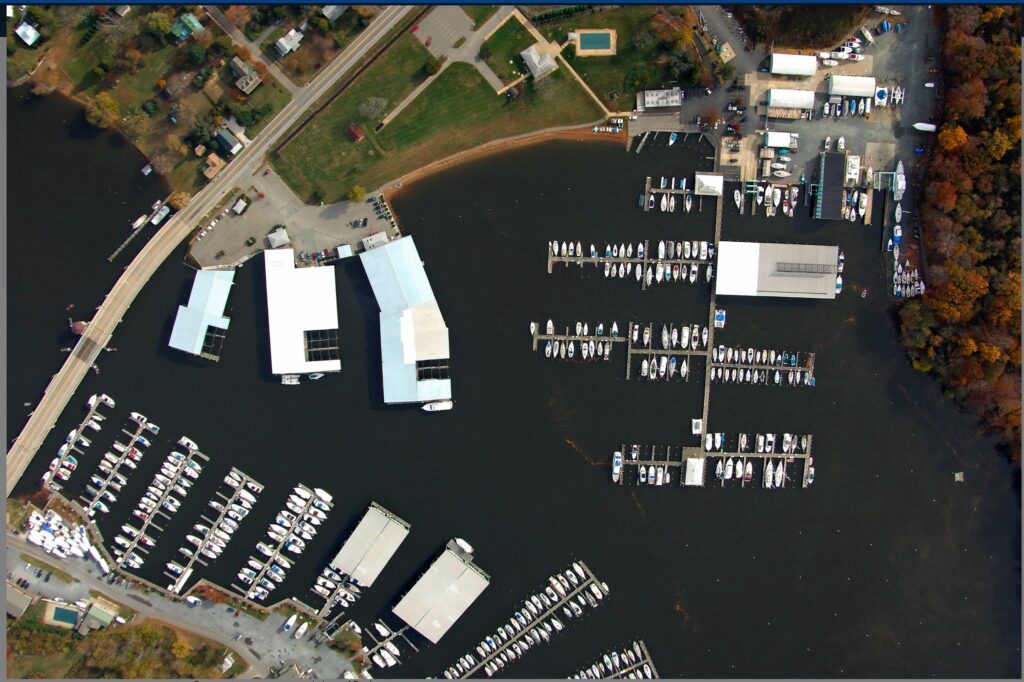
Have a Boat to Sell?
- Select a Year
- Select a Make
- AB Inflatables
- Action Craft
- Albury Brothers
- American Custom Yachts
- American Tug
- Argos Nautic
- Arrow head ski
- Austin Parker
- Barker Boatworks
- Bass seeker
- Bass Tracker
- Boca Grande
- Boston Whaler
- Buddy Davis
- Californian
- Cap-N-Squid
- Carolina Cat
- Carolina Classic
- Carolina Skiff
- Carolina Skimmer
- Center Console
- Chaparral Vortex
- Chris-Craft
- Cinco Boatworks
- Coach Pontoons
- Competition
- Correct craft
- Costa Custom Boats
- Cruisers Yachts
- Custom Carolina
- Custom Line
- Cypress cay
- De Antonio Yachts
- Deep Impact
- El ShaddieFla
- Fathom Yachts
- Ferretti Yachts
- Forest River
- Fountaine Pajot
- Freedom Boat Works
- Front Runner
- Gamefisherman
- Glacier Bay
- Grady-White
- Grand Banks
- Hacker-Craft
- Harris FloteBote
- Hunt Yachts
- Hydra sports
- Hydra-Sports
- Inmar Inflatable
- Intermarine
- Island Runner
- J&H Performance
- Jarrett Bay
- Jersey Cape
- Jet Williams
- Jones Brothers
- Judge Yachts
- Kadey-Krogen
- LaserPerformance
- Lazzara Yachts
- Lexington Pontoon
- Liquid Glass
- Little Harbor
- Macgregor/Venture
- Magnum Marine
- Maimi sport
- Malcolm Tennant
- Marine Trader
- Marine trader trawler
- Mastercraft
- Mathews Brothers
- Maverick Boat Co.
- Mckee Craft
- Midnight Express
- Miller Marine
- Misty Harbor
- Monte Carlo
- Monte Carlo Yachts
- Nautic Star
- Nordic Tugs
- North Coast
- OBX Boatworks
- Ocean Alexander
- Ocean Master
- Ocean Runner
- Ocean Yachts
- Outer Banks
- Outer Limits
- Pacific Mariner
- Pair Customs
- Palmer Johnson
- Polar kraft
- Pontoon Air Cruiser
- Ranger Tugs
- Reef Runner
- Release Boatworks
- Rockharbour
- Rodriguez Yachts
- Schaefer Yachts
- Seaswirl Striper
- Sessa Marine
- Shallow Sport
- Siar Moschini
- Silver wave pontoon
- Smoker Craft
- Smokercraft
- Steiger Craft
- Sun Tracker
- Tahoe tritton
- Tecnomar Yachts
- Tiara Sport
- Tiara Yachts
- Tracker Grizzly
- Tracker Marine
- Tracker pro160
- Tracker Tahoe
- Tracker Tahoe Q4 Ski
- True World Marine
- United marine
- Vintage Hickman
- Water Mocassin
- Williams Jet Tenders
- Williamscraft
- Windsor Craft
- Winter Custom Yachts
- Wooden sailing Dinghy
- Yamaha Boats
- yamaha linux
- ZAR Formenti
- Length (ft)
- 100 ft
- 101 ft
- 102 ft
- 103 ft
- 104 ft
- 105 ft
- 106 ft
- 107 ft
- 108 ft
- 109 ft
- 110 ft
- 111 ft
- 112 ft
- 113 ft
- 114 ft
- 115 ft
- 116 ft
- 117 ft
- 118 ft
- 119 ft
- 120 ft
- 121 ft
- 122 ft
- 123 ft
- 124 ft
- 125 ft
- 126 ft
- 127 ft
- 128 ft
- 129 ft
- 130 ft
- 131 ft
- 132 ft
- 133 ft
- 134 ft
- 135 ft
- 136 ft
- 137 ft
- 138 ft
- 139 ft
- 140 ft
- 141 ft
- 142 ft
- 143 ft
- 144 ft
- 145 ft
- 146 ft
- 147 ft
- 148 ft
- 149 ft
- 150 ft
- 151 ft
- 152 ft
- 153 ft
- 154 ft
- 155 ft
- 156 ft
- 157 ft
- 158 ft
- 159 ft
- 160 ft
- 161 ft
- 162 ft
- 163 ft
- 164 ft
- 165 ft
- 166 ft
- 167 ft
- 168 ft
- 169 ft
- 170 ft
- 171 ft
- 172 ft
- 173 ft
- 174 ft
- 175 ft
- 176 ft
- 177 ft
- 178 ft
- 179 ft
- 180 ft
- 181 ft
- 182 ft
- 183 ft
- 184 ft
- 185 ft
- 186 ft
- 187 ft
- 188 ft
- 189 ft
- 190 ft
- 191 ft
- 192 ft
- 193 ft
- 194 ft
- 195 ft
- 196 ft
- 197 ft
- 198 ft
- 199 ft
- 200 ft
- (410) 648-5112
- [email protected]

Georgetown Yacht Haven
Professionally managed, exceptional experience guaranteed..
Georgetown Yacht Haven is a full-service marina on the Northern Chesapeake Bay offering unmatched amenities, experienced staff, and unparalleled convenience. Experience boating at its finest at Georgetown Yacht Haven.

Discover The Chesapeake Bay's Premier Full Service Marina
From our ample amenities to the largest travel lift on the Chesapeake Bay, Georgetown Yacht Haven is where you want to spend your summer! Located on the easily navigable Sassafras River, Georgetown Yacht Haven is under new management and is quickly (re)becoming the #1 full service marina on the Chesapeake. Managed by the team at Pier Pressure Marine Services Group, our marina is a safe and fun location to store your boat and enjoy summer the way it should be spent...on the water!

Georgetown Yacht Haven is located on the Sassafras River of the Chesapeake Bay and offers long-Term dockage, transient slips, covered slips, and yacht repair.
Office: (410) 648-5112
Stay Connected
- Boat Services
- Travel Lift & Haul Outs
- Boat Storage
- Amenities & Entertainment
- Privacy Policy
- Terms Of Use
- Cookie Policy (US)

IMAGES
VIDEO
COMMENTS
The Cayman Islands is a jurisdiction of choice for offshore vessel registration for many reasons, the most popular of which being the tax benefits. As a tax-neutral jurisdiction, yacht owners registered in the Cayman Islands can save thousands in fees related to taxes, registration, and VAT alone. The Cayman Islands also offers convenient ease ...
TIL there are no skeletons in the wreck of the Titanic or debris field. At depths of 3,000+ feet, seawater is undersaturated with calcium carbonate. Once animals ate the flesh of Titanic's passengers and crew, their bones dissolved. For true stories that you could have sworn were from The Onion.
The George Town Yacht Owner's Mark in Luxury Yachting. Among these billionaire yacht owners, the George Town yacht owner's influence cannot be overlooked. Known for their exquisite taste and an eye for detail, they stand as a significant player in the realm of luxury yachting. The level of comfort, sophistication, and technology in their ...
The yachting industry, like many other travel-related industries, was initially hit hard by the COVID-19 pandemic. However, there are now signs of recovery in the area of yacht sales and charters and the Cayman Islands continues to be a key player in the vessel registration space in these unprecedented times.
Other advantages of registering a boat in the Cayman Islands. The range of jurisdictions willing to grant their flag to private yachts is quite extensive. Therefore, many potential boat owners prefer more cost-effective options. In certain typical cases, this approach may be conditionally acceptable.
The name of a vessel can be registered in one of the three ports - George Town, The Creek and Bloody Bay. The same applies for George Town yacht registration, meaning that if the port of choice does not have a name available, the other two may allow for that specific registration. When the name is available in all three ports, it can be ...
Yacht sales increasing. The world's super-rich have started buying their new super-yachts, industry sales numbers clearly show. But the yachting world takes that as a sign sales of the whole range of luxury craft, including smaller, more modest vessels, will lift with what looks like a rising economic tide. In January, Joel Walton, CEO of the ...
A flag state is the country or governmental entity under whose laws a vessel is registered or licensed. This can be the country in which the owner resides, or more commonly in the superyacht world, an offshore ship registry in a country with laws that are attuned to the complexities of yacht ownership and charter operations.
The Cayman Islands are the number one offshore register for super yachts, with an estimated 15% of the world fleet of yachts over 30m (100ft). The allure of owning a private yacht remains unwavering, as the influence of wealth and tax laws and United States Coast Guard regulations play a significant role in the decision to register a yacht in the Cayman Islands.
Our fixed fee yacht registration package for the Cayman Islands registration of any private yacht under 24 metres in registered length lying within the EU costs only £5,250.00 in year one and then £1,450.00 per annum in second and subsequent years and includes: Full Certificate of British registry. Provision of Cayman Islands representative ...
Almost 80% of the yachts and superyachts are registered in the Cayman Islands, Gibraltar and Isle of Man. Sailing under one of these flags provides protection of the British maritime law, commercial confidentiality and adherence to the Large Yacht Code (LYC) The registry with the largest number of yachts is the Cayman Island Shipping Registry.
6. Malta. Malta has one of the largest ship registries in the world and the largest in Europe. The Maltese ship registry is the largest in Europe and one of the largest in the world; it is one of the most popular countries in the world for pleasure yacht registration.
2. If the yacht is not also documented with the U.S., then the yacht may not be a U.S. flagged boat, as the nationality of the yacht is the same as the nationality of its owners. 3. Regardless of being registered in Florida, if the yacht is flying a foreign flag, then the yacht is still subjected to U.S. Customs regulations. 4.
So why wait? Register your yacht in Georgetown today and enjoy the many benefits it has to offer. Low Taxes. Georgetown is an ideal location for yacht registration due to its low taxes. The government has carefully crafted a system which makes it possible for yacht owners to benefit from this economic incentive.
A yacht owner will want a flag that is competitive, accessible and enjoys a good reputation. "Registering a yacht is like obtaining a passport. You are effectively choosing the yacht's nationality, with all the advantages and responsibilities that this entails". From a private law perspective, too, your choice of Flag State can be critical.
Yacht ownership is a significant aspect of wealth and influence, with billionaires setting new standards for yacht ownership. The Cayman Islands are a popular jurisdiction for offshore vessel registration due to tax benefits, including the ability to prove nationality and secure title to movable assets.
The new, $1.5-million, more that 80-feet-long motorized boat replaces the long out-of-commission barge — simply named "The Georgetown" — which departed in October 2016 to be broken up, when the Georgetown section of the canal began a significant reconstruction. "Georgetown Heritage and the National Park Service are excited to be ...
Many of the passengers flocking in for a ride on the Georgetown Heritage are therefore nostalgic about the joys of touring the canal aboard such a craft. Built for a cost of $1.5 million at Roudebush Yacht & Engine Works in Dundalk, Maryland, the "Georgetown Heritage" was modeled on designs for the historic packet boats that hauled goods ...
The Register. The Register is the definitive guide to the largest, fastest and most iconic superyachts in the world. BOAT International's list of the top 25 largest yachts in the world profiles the biggest, most innovative and most notable motor and sailing superyachts on the water today.. Find a breakdown of the 50 largest sailing yachts in the world and the 50 largest luxury yachts built ...
The Chesapeake Bay's Premier Full Service marina. Georgetown Yacht Haven is a premier full service marina located on the Sassafras River on the upper Chesapeake Bay in Maryland. We offer long term dockage, transient slips, covered slips, and a full service yacht repair facility with haul out up to 110 tons and a 30'5" beam!
The acquisition of the marina will allow us to expand on sales, service, and custom-built Nor-Tech Performance Boat sales in the region. Georgetown Yacht Haven has 300 slips, two paint sheds that can hold up to a 110-foot yacht, a 110-ton travel lift, a fuel dock, a swimming pool, bathhouses, and a complete ship store, along with many other ...
14020 Augustine Herman Hwy. Georgetown, MD 21930. Check-in after 12:00 AM. Check-out before 12:00 AM. +1 410-648-5112. VHF 71. Favorite.
Georgetown Yacht Haven is located on the Sassafras River of the Chesapeake Bay and offers long-Term dockage, transient slips, covered slips, and yacht repair. Office: (410) 648-5112. Stay Connected. Facebook-f Instagram. Navigate. About; Boat Slips; Boat Services; Travel Lift & Haul Outs; Boat Storage;